Donald Trump is one of the most polarizing figures in modern history, and opinions about him are sharply divided. While some hail him as a transformative leader who disrupted the political establishment, others criticize him for deepening societal divides and undermining democratic norms. Donald Trump’s significance in American and global history cannot be overstated. As the 45th President of the United States, Trump’s policies and rhetoric reshaped the Republican Party and altered the course of American politics.
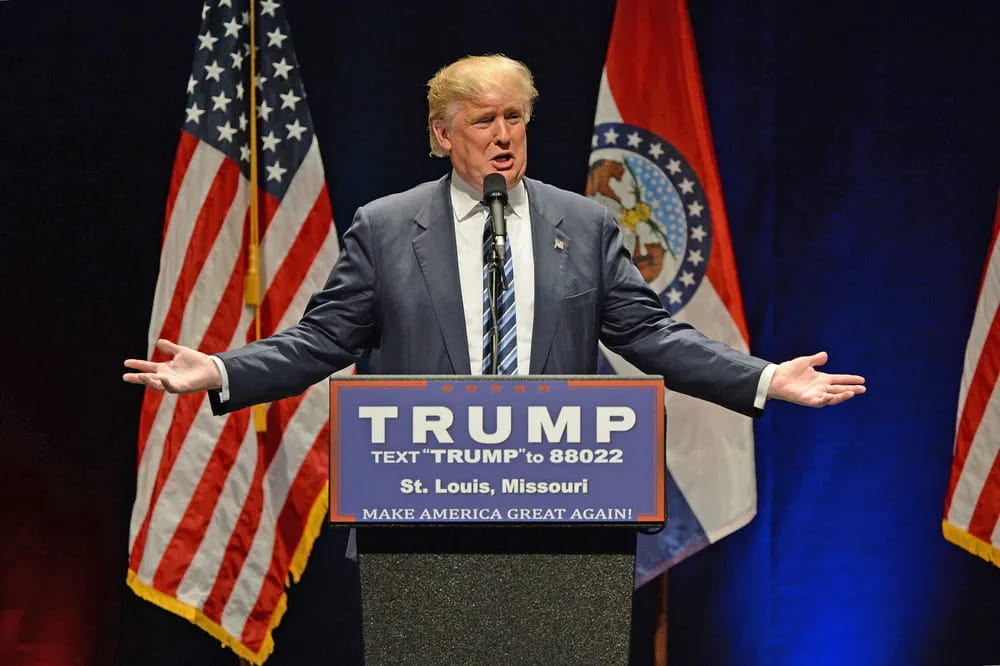
His influence extends beyond politics; as a businessman and media personality, Trump was a dominant figure long before he entered the political arena. His brand, synonymous with luxury and excess, became a global icon. Additionally, Trump’s presidency is characterized by significant achievements, controversial decisions, and unprecedented events—including two impeachment trials, a global pandemic, and a contested election. His impact on international relations, domestic policy, and cultural discourse continues to reverberate, making him a pivotal figure in understanding the contemporary world.
Early Life and Family Background
Ancestry and Family Origins
Donald John Trump was born on June 14, 1946, in Queens, New York, into a family with deep roots in both Germany and Scotland. The Trump family name originated in Germany, with his grandfather, Friedrich Drumpf (Trump being the later perversion of Drumpf) , being the first to immigrate to the United States. Friedrich was born in Kallstadt, a small village in the Rhineland-Palatinate region of Germany, in 1869. Seeking better economic opportunities, Friedrich Trump emigrated to the United States in 1885 at the age of 16, joining the wave of German immigrants who were reshaping American society at the time.
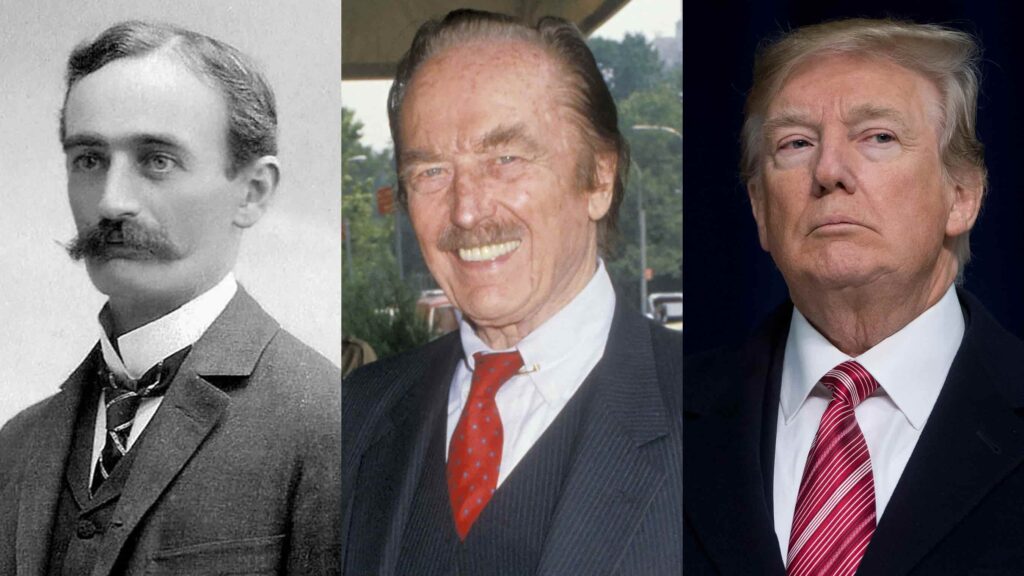
Friedrich initially worked as a barber in New York City but soon moved west during the Klondike Gold Rush, where he established a restaurant and hotel business catering to miners in the Yukon Territory. These ventures laid the foundation for the Trump family’s wealth. After returning to New York, Friedrich married Elisabeth Christ in 1902, and the couple had three children, including Fred Trump, Donald Trump’s father.
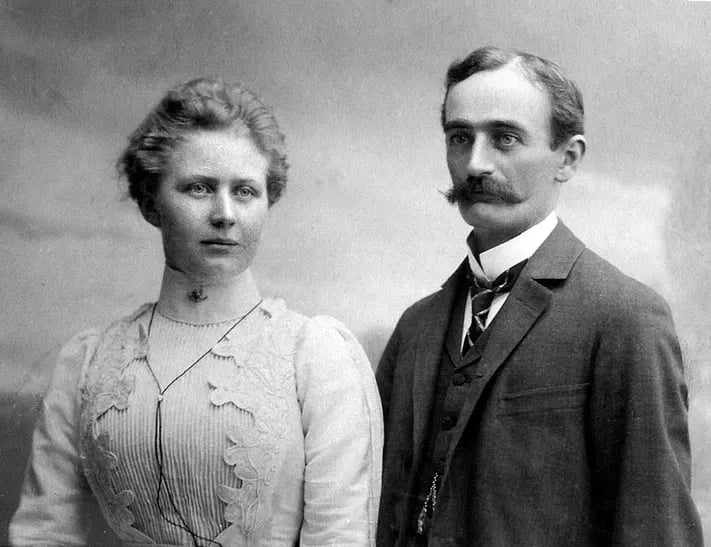
The family settled in Queens, New York, where Friedrich continued to build his real estate business until his untimely death in 1918 during the Spanish flu pandemic.
On his mother’s side, Donald Trump has Scottish roots. Mary Anne MacLeod, Trump’s mother, was born in 1912 in Tong, a small fishing village on the Isle of Lewis in Scotland. The MacLeod family lived a modest life, with Mary Anne growing up in a Gaelic-speaking household. In 1930, seeking better prospects, she emigrated to the United States, where she initially worked as a domestic servant. Mary Anne eventually met and married Fred Trump, integrating her Scottish heritage into the Trump family lineage.
Parents and Siblings
Fred Trump, born on October 11, 1905, played a crucial role in shaping Donald Trump’s character and future ambitions. A self-made real estate developer, Fred Trump capitalized on the post-World War II housing boom, building affordable housing for middle-income families in Queens and Brooklyn. His disciplined approach to business, frugality, and relentless work ethic left a lasting impression on his children. Fred was known for his hands-on management style, often visiting construction sites and personally ensuring that projects were completed on time and within budget. These attributes were later echoed in Donald Trump’s approach to business and his public persona.
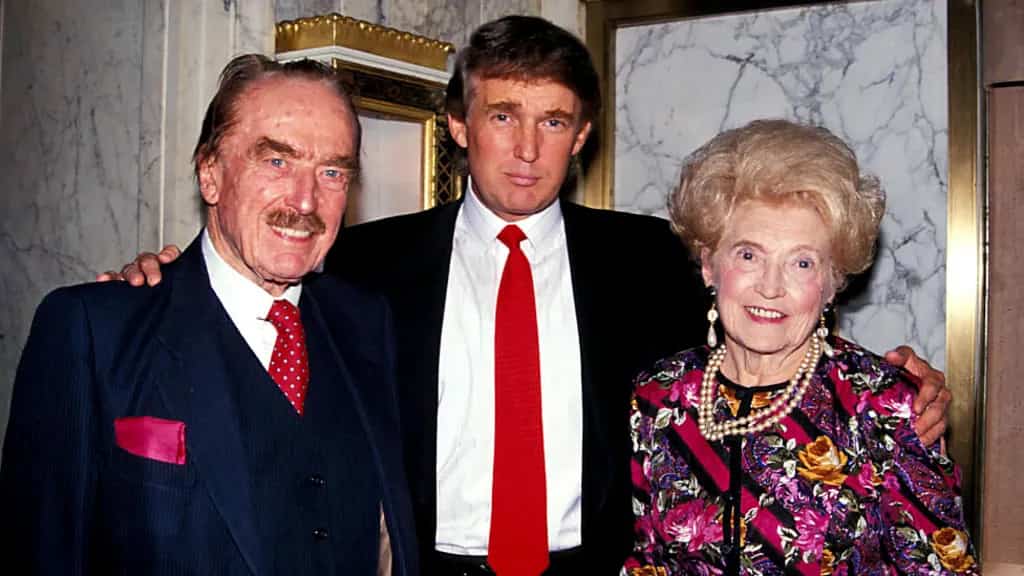
Mary Anne MacLeod Trump, on the other hand, was a traditional homemaker who provided a stable and nurturing environment for the Trump children. Despite her quiet demeanor, she was a strong influence on Donald, instilling in him a sense of pride in his Scottish heritage and an appreciation for traditional values. Mary Anne’s role in Donald’s upbringing was marked by a focus on discipline, religious faith, and a strong sense of family loyalty.
The Trump family had five children total, with Donald coming in at number four. Among his siblings are:

Maryanne Trump Barry: Born in 1937, Maryanne pursued a career in law and became a federal judge, eventually serving on the U.S. Court of Appeals for the Third Circuit. Known for her sharp intellect and dedication to public service, Maryanne was often a stabilizing force within the family, offering legal and personal advice to her younger brother.
Fred Trump Jr.: Born in 1938, Fred Jr. was initially seen as the heir apparent to the Trump business empire. However, he struggled with the pressures of the family business and eventually pursued a career as a commercial airline pilot. Fred Jr.’s battle with alcoholism and his tragic death in 1981 at the age of 42 had a profound impact on Donald Trump, who has often cited his brother’s struggles as a reason he abstains from alcohol.
Elizabeth Trump Grau: Born in 1942, Elizabeth chose a more private life, working as a banking executive before retiring. She has remained out of the public eye, though she is known to have had a close relationship with her siblings.
Robert Trump: Born in 1948, Robert was the youngest of the Trump children and worked within the Trump Organization, managing real estate holdings. Known for his loyalty and low-profile nature, Robert was often seen as Donald’s confidant and right-hand man. His death in 2020 was a significant emotional blow to Donald Trump, highlighting the deep bond between the brothers.
Childhood and Upbringing
Donald Trump’s childhood in Queens was marked by privilege, discipline, and a strong sense of competition. Growing up in the affluent neighborhood of Jamaica Estates, Trump was surrounded by the trappings of wealth from an early age. The Trump household was a place where business discussions were commonplace, and young Donald was exposed to the world of real estate and finance from a young age. His father’s influence was omnipresent, with Fred Trump often taking Donald to construction sites and involving him in business meetings, even as a child.
However, Donald’s childhood was not without challenges. He was a rambunctious and energetic child, often getting into trouble at school and at home. His parents, particularly Fred, emphasized the importance of discipline and hard work. To instill these values, Fred Trump decided to send Donald to the New York Military Academy at the age of 13, hoping that the strict environment would channel his energy in a productive direction.
Early Education
Donald Trump’s early education began at the Kew-Forest School in Forest Hills, Queens. However, his behavior often got him into trouble, leading his parents to seek a more structured environment. In 1959, Donald was enrolled in the New York Military Academy (NYMA), a private boarding school located in Cornwall-on-Hudson, New York. NYMA was known for its rigorous academic and physical training programs, designed to prepare young men for leadership roles.
At the academy, Trump excelled both academically and in extracurricular activities. He was a standout athlete, participating in football, baseball, and soccer, and eventually rose to the rank of captain in the cadet corps.
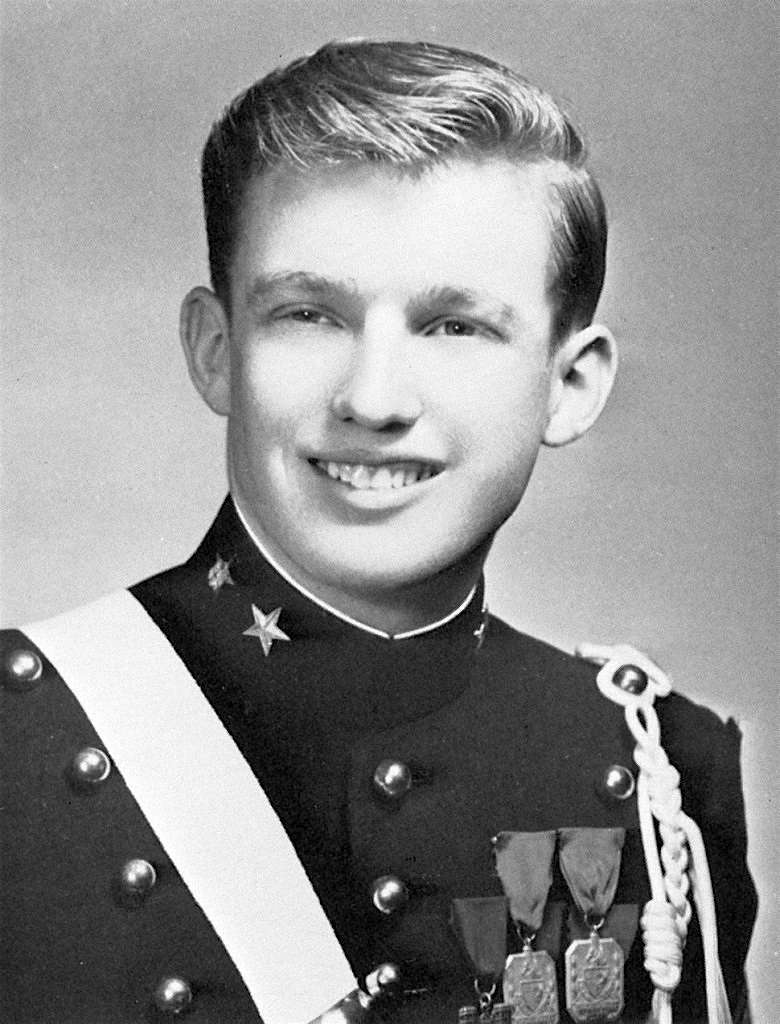
The military environment instilled in him a sense of discipline, leadership, and a competitive spirit that would later define his business and political careers. Trump has often credited NYMA with shaping his character, teaching him the importance of structure, and giving him the confidence to take on challenges.
Influence of Family Wealth
The Trump family’s wealth played a significant role in shaping Donald Trump’s worldview and opportunities. Growing up in a household where wealth was a given, Donald was accustomed to a life of luxury and privilege. However, Fred Trump made it clear that wealth was not something to be taken for granted. He instilled in his children the importance of hard work, frugality, and the need to prove oneself. This paradoxical environment—where wealth was both a privilege and something to be earned—had a profound impact on Donald Trump.
Fred Trump’s success in real estate provided Donald with both the financial backing and the business acumen to pursue his ambitions. The lessons Donald learned from his father about leveraging debt, maximizing profits, and navigating the complexities of real estate development would become central to his own business strategies. Additionally, the wealth allowed Donald to take risks that others might not have been able to afford, contributing to his bold and sometimes controversial approach to business.
Education and Early Career
College Years
After graduating from the New York Military Academy in 1964, Donald Trump began his higher education at Fordham University in the Bronx, New York. Fordham, a private Jesuit university, provided Trump with a foundation in liberal arts, but he stayed there for only two years. In 1966, Trump transferred to the University of Pennsylvania’s Wharton School of Finance and Commerce, one of the most prestigious business schools in the country. This move was significant, as Wharton had a reputation for producing top-tier business leaders, and it was here that Trump solidified his ambition to become a successful businessman.
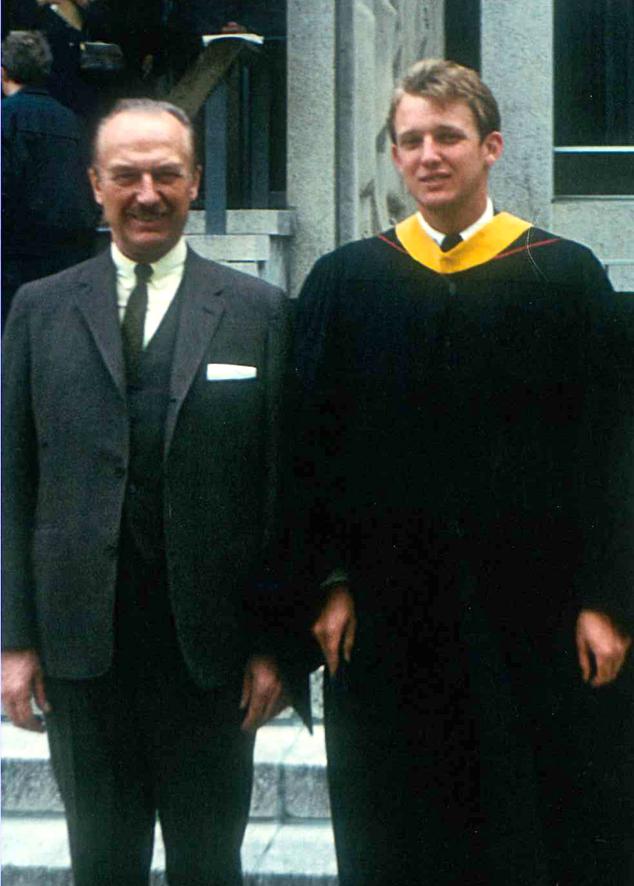
At Wharton, Trump studied economics and finance, subjects that were directly relevant to his future career in real estate. Although he was not known for being an academic standout, Trump absorbed the principles of finance and real estate development that would later serve him well. He earned his Bachelor of Science in economics in 1968. His time at Wharton is often referenced in his public speeches and writings, as he highlights the school’s influence on his understanding of business and the economy.
Trump’s education was also supplemented by his experiences outside the classroom. During his time at Wharton, he worked closely with his father, Fred Trump, who had begun to involve him in the family’s real estate business. This hands-on experience was arguably more valuable to Donald than his formal education. He learned the ins and outs of property development, management, and the financial strategies that would later define his approach to business.
Early Business Ventures
Even before he graduated from Wharton, Donald Trump was actively involved in the family business. His father, Fred Trump, was a successful real estate developer, primarily focused on residential properties in Queens and Brooklyn. Fred’s business was thriving, and he began to entrust Donald with more responsibilities, giving him a taste of the real estate industry at a young age.
One of Donald Trump’s first significant projects was revitalizing the Swifton Village apartment complex in Cincinnati, Ohio, in the early 1970s. The complex had been struggling with low occupancy rates and needed substantial renovations. Trump, working alongside his father, oversaw the renovations and the subsequent leasing efforts. The project was a success, marking Trump’s first major achievement in the real estate business.
However, Donald Trump was not content to work solely within the framework of his father’s business. He had larger ambitions, and by the early 1970s, he began to seek out opportunities in Manhattan, where the stakes were higher and the rewards potentially much greater. Manhattan represented the pinnacle of real estate success, and Trump was determined to make his mark on the city’s skyline.
In 1971, Donald Trump moved to Manhattan and began to focus on larger projects, often taking on properties that were considered too risky or complicated by others. One of his early ventures was the Commodore Hotel, a dilapidated property located near Grand Central Terminal. Trump negotiated a complex deal with the city to acquire the property, secure tax abatements, and partner with the Hyatt Corporation to renovate and reopen the hotel as the Grand Hyatt New York in 1980.
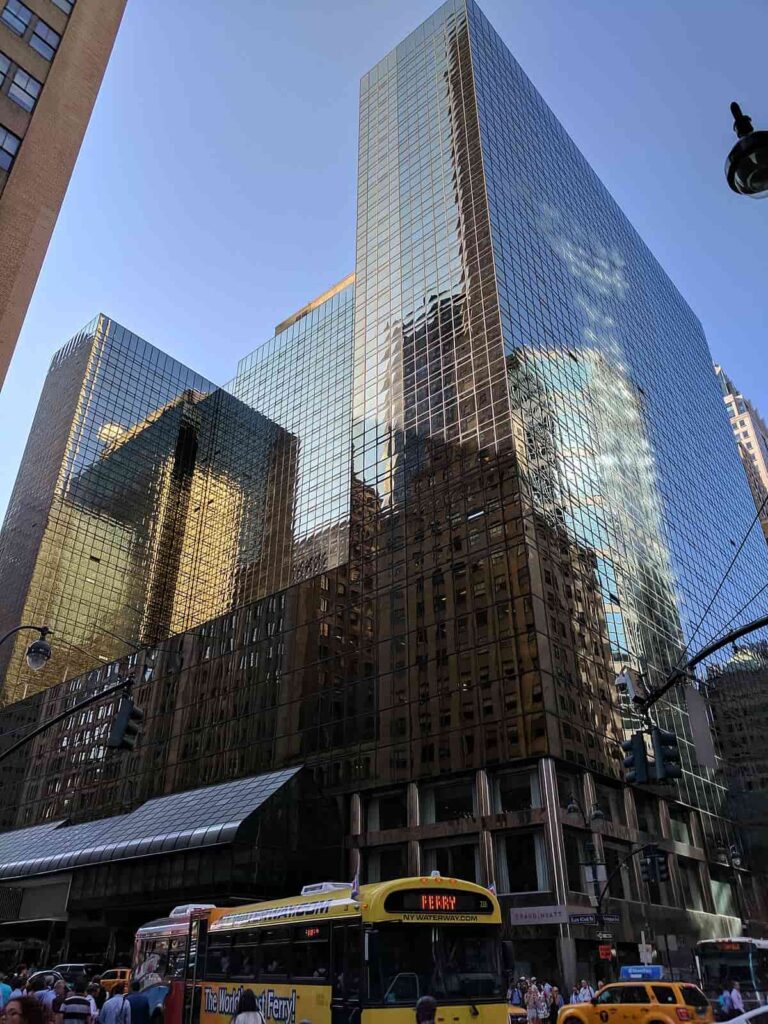
This project was a turning point for Trump, establishing him as a significant player in the Manhattan real estate market.
Trump Organization
As Trump’s ambitions grew, so did the scope of his business activities. In 1971, he officially took control of the Trump Organization, which had previously been known as Elizabeth Trump & Son, the company founded by his grandmother and father. Under Donald’s leadership, the Trump Organization expanded its operations beyond residential properties in Brooklyn and Queens to include high-profile developments in Manhattan.
The Trump Organization became synonymous with luxury, grandiosity, and a flair for publicity. Donald Trump’s approach to business was marked by an aggressive pursuit of prime real estate locations, innovative financing methods, and a keen sense for branding. One of his key strategies was to leverage his personal name as a brand, associating it with luxury and success. This branding strategy became a cornerstone of the Trump Organization’s marketing efforts, helping to attract investors and buyers.
One of Trump’s most iconic projects during this period was the construction of Trump Tower on Fifth Avenue. Completed in 1983, Trump Tower became a symbol of Trump’s success and a landmark in New York City.
The 58-story building featured luxury condominiums, office spaces, and high-end retail stores. It was also the headquarters for the Trump Organization and Trump’s personal residence. The project was a massive success and solidified Trump’s reputation as a top-tier real estate developer.
Throughout the 1980s, the Trump Organization continued to expand, acquiring properties and developing new projects in New York City and beyond. Trump’s business strategy involved a mix of high-profile, high-risk investments and a relentless pursuit of media attention. He cultivated relationships with the press, often inviting journalists to cover his latest projects or publicizing his opinions on various matters. This media strategy not only helped to keep the Trump brand in the public eye but also enhanced the perceived value of his properties.
However, Trump’s aggressive business tactics also led to significant challenges. His reliance on debt financing to fund his projects left him vulnerable to economic downturns, and by the early 1990s, Trump’s empire was under severe financial strain. Nevertheless, Trump’s ability to navigate these challenges, often through renegotiating debts and leveraging his brand, allowed him to survive periods of financial difficulty and emerge with his business intact.
Real Estate Empire
Major Developments
Donald Trump’s real estate empire is best known for its high-profile developments, many of which have become iconic landmarks. The most famous of these is Trump Tower on Fifth Avenue in Manhattan. Completed in 1983, Trump Tower is a 58-story mixed-use skyscraper that houses luxury residential condominiums, office spaces, and high-end retail stores. The building’s design, featuring a striking black glass facade and a grand atrium with a cascading waterfall, exemplifies the opulence and grandeur associated with the Trump brand. Trump Tower quickly became a symbol of Trump’s success and a landmark in New York City.
Another significant project was the Trump Plaza in Atlantic City, New Jersey. In the 1980s, Atlantic City was experiencing a boom in casino development, and Trump saw an opportunity to capitalize on the growing gambling industry. He acquired a controlling interest in the Boardwalk Hotel and Casino and, after extensive renovations, reopened it as Trump Plaza in 1984. The success of Trump Plaza led to further expansion in Atlantic City, including the construction of Trump Castle (later renamed Trump Marina) and Trump Taj Mahal, which was billed as the world’s largest casino when it opened in 1990.
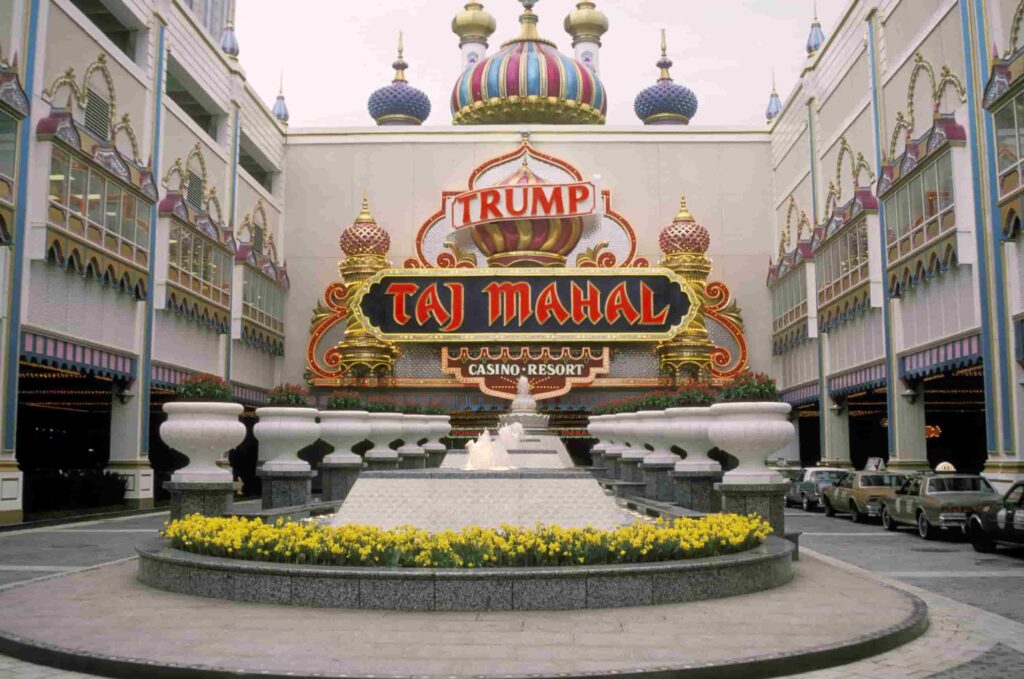
In addition to his developments in New York and Atlantic City, Trump also made a significant mark on the global real estate market. Trump International Hotel and Tower in Chicago, completed in 2009, is one of the tallest buildings in the world and features luxury residences, a hotel, and retail spaces. The building’s design and construction were marked by Trump’s signature attention to detail and emphasis on luxury, further solidifying his reputation as a leading real estate developer.
Business Strategies
Donald Trump’s business strategies in real estate were characterized by a combination of boldness, opportunism, and a keen understanding of market dynamics. One of his most notable strategies was his use of branding. Trump understood the value of a strong brand and meticulously cultivated the Trump name as synonymous with luxury, success, and power. This branding allowed him to command premium prices for his properties and attract high-profile clients and investors.
Another key strategy was Trump’s aggressive approach to deal-making. He was known for his ability to negotiate favorable terms, often securing tax abatements, subsidies, or financing arrangements that reduced his financial risks. For example, in the redevelopment of the Commodore Hotel into the Grand Hyatt, Trump negotiated a 40-year tax abatement with the City of New York, significantly enhancing the project’s profitability.
Trump’s use of debt financing was another hallmark of his business strategy. He often leveraged significant amounts of debt to finance his projects, allowing him to undertake large-scale developments with relatively little upfront capital. While this approach enabled rapid expansion, it also exposed Trump to considerable risk, particularly during economic downturns.
Controversies and Legal Battles
Donald Trump’s real estate career has been marked by numerous controversies and legal battles. One of the earliest controversies involved accusations of racial discrimination in the Trump Organization’s rental practices. In 1973, the U.S. Department of Justice filed a lawsuit against Trump Management Corporation, alleging that the company had discriminated against African-American applicants in renting apartments. Trump denied the allegations but eventually settled the case without admitting guilt, agreeing to a consent decree that required the company to change its rental practices.
Throughout his career, Trump has also faced numerous legal challenges related to zoning, environmental regulations, and labor disputes. For example, the construction of Trump Tower faced opposition from preservationists who sought to protect the historic Bonwit Teller building that previously occupied the site. Trump’s decision to demolish the building’s Art Deco friezes, which he had initially promised to preserve, sparked public outrage.
In Atlantic City, Trump’s casino ventures were also fraught with legal and financial challenges. The construction of Trump Taj Mahal, in particular, was plagued by cost overruns and labor disputes. Trump’s reliance on junk bonds to finance the project led to financial difficulties, and by 1991, the Taj Mahal filed for bankruptcy. This was the first of several bankruptcies that Trump’s casino businesses would experience over the next decade, leading to significant scrutiny of his business practices.
Despite these controversies and legal battles, Trump’s ability to navigate complex financial and legal landscapes allowed him to maintain and even expand his real estate empire. His willingness to engage in protracted legal disputes, often as a negotiating tactic, became a defining feature of his business career.
Ventures Beyond Real Estate
Television Career
In the early 2000s, Donald Trump expanded his public persona by entering the world of television. His most notable venture in this arena was the reality television show “The Apprentice”, which premiered on NBC in 2004. The show featured contestants competing in business-related challenges, with Trump serving as the central figure who judged their performance. Trump’s catchphrase, “You’re fired!” became a cultural phenomenon, and the show’s success further elevated Trump’s public profile.
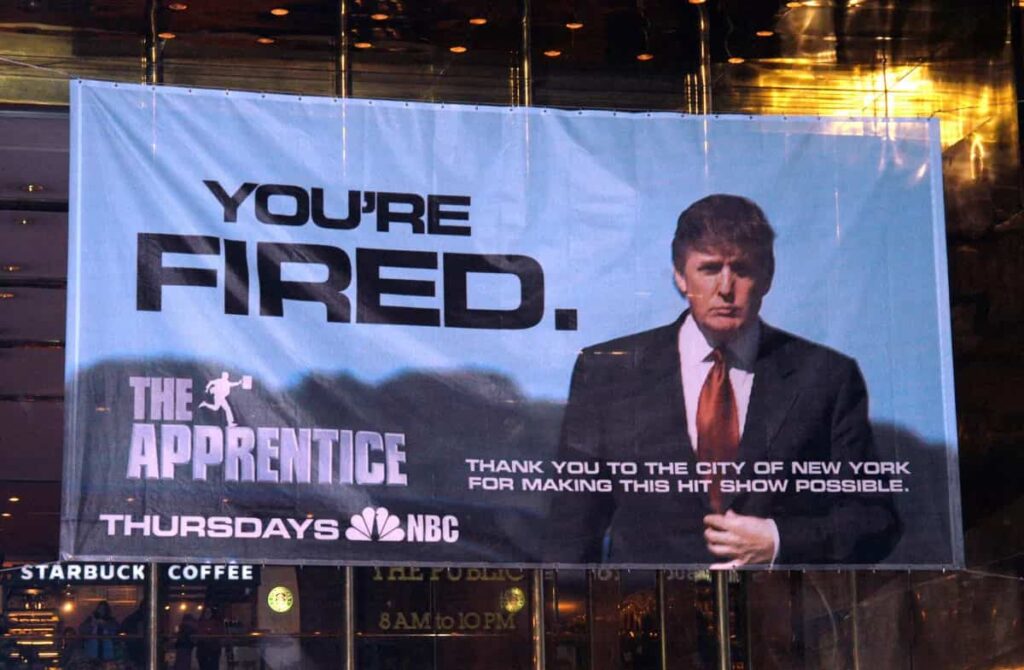
“The Apprentice” not only showcased Trump’s business acumen but also portrayed him as a decisive and authoritative leader, qualities that would later play a significant role in his political image. The show was a ratings success and ran for 14 seasons, spawning several spin-offs, including “The Celebrity Apprentice,” where Trump interacted with high-profile contestants from various industries.
Trump’s involvement in television extended beyond “The Apprentice.” He made numerous guest appearances on talk shows, sitcoms, and even wrestling programs, often playing up his larger-than-life persona. His television career helped cement his status as a pop culture icon and significantly broadened his appeal to a mainstream audience.
Book Publications
Donald Trump has authored and co-authored several books, many of which focus on business, success, and self-promotion. His first book, “The Art of the Deal,” published in 1987, became a bestseller and is often credited with shaping Trump’s public image as a shrewd and successful businessman. The book combines autobiographical anecdotes with business advice, offering insights into Trump’s deal-making philosophy.
“The Art of the Deal” was followed by other books, including “Trump: Surviving at the Top” (1990), “The Art of the Comeback” (1997), and “Trump: How to Get Rich” (2004). These books reinforced Trump’s brand as a master of business and a symbol of success, attracting a wide readership and further solidifying his reputation.
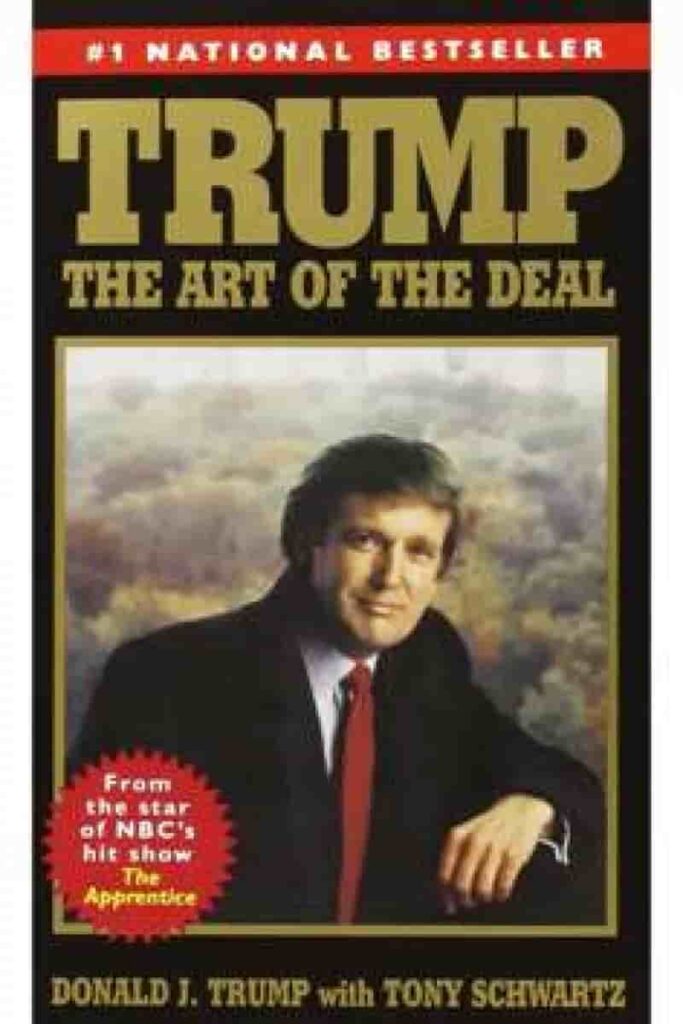
In addition to his business-focused books, Trump also published “Crippled America: How to Make America Great Again” in 2015, which served as a platform for his political views and laid the groundwork for his presidential campaign. The book outlines Trump’s critiques of the American political system and his vision for the country’s future, reflecting the themes that would later dominate his campaign.
Other Business Ventures
Donald Trump’s business ventures extend far beyond real estate and television. Over the years, he has dabbled in various industries, often with mixed results. Among his most noteworthy enterprises are:
Trump Airlines: In 1989, Trump purchased Eastern Air Lines’ shuttle service, rebranding it as Trump Shuttle. The airline offered service between New York, Boston, and Washington, D.C. However, the venture struggled financially and was eventually sold in 1992.
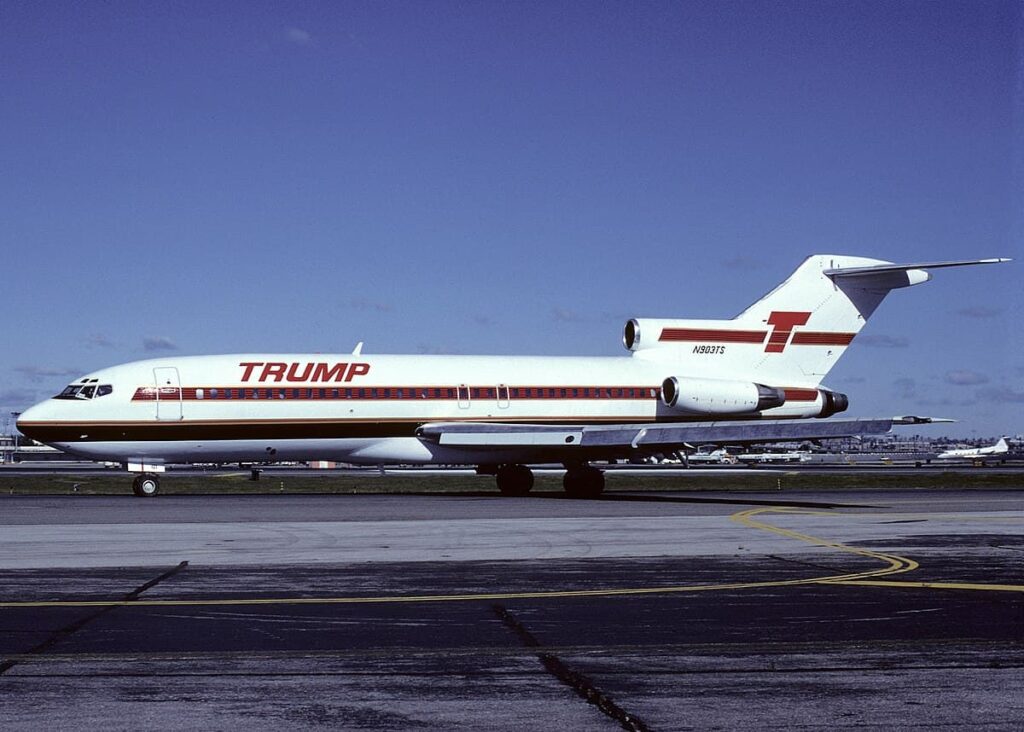
Trump Vodka: Launched in 2006, Trump Vodka was marketed as a premium spirit, capitalizing on the Trump brand’s association with luxury. Despite initial hype, the product failed to gain a significant market share and was discontinued.
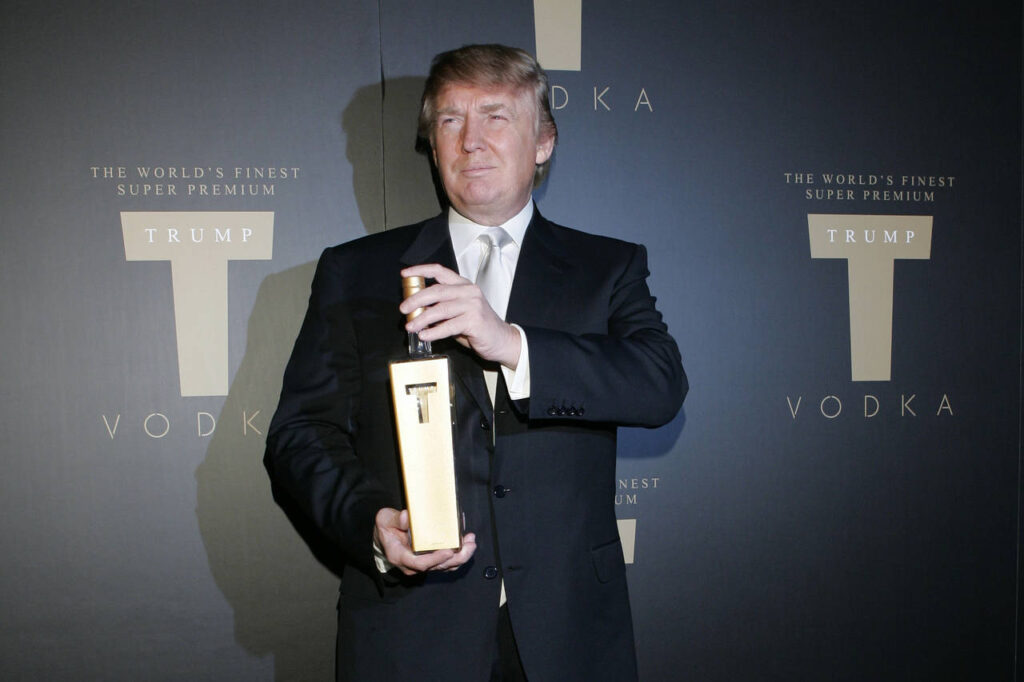
Trump Steaks: Introduced in 2007, Trump Steaks were sold through the Sharper Image catalog and website. The venture was short-lived, as the product failed to meet sales expectations and was eventually discontinued.
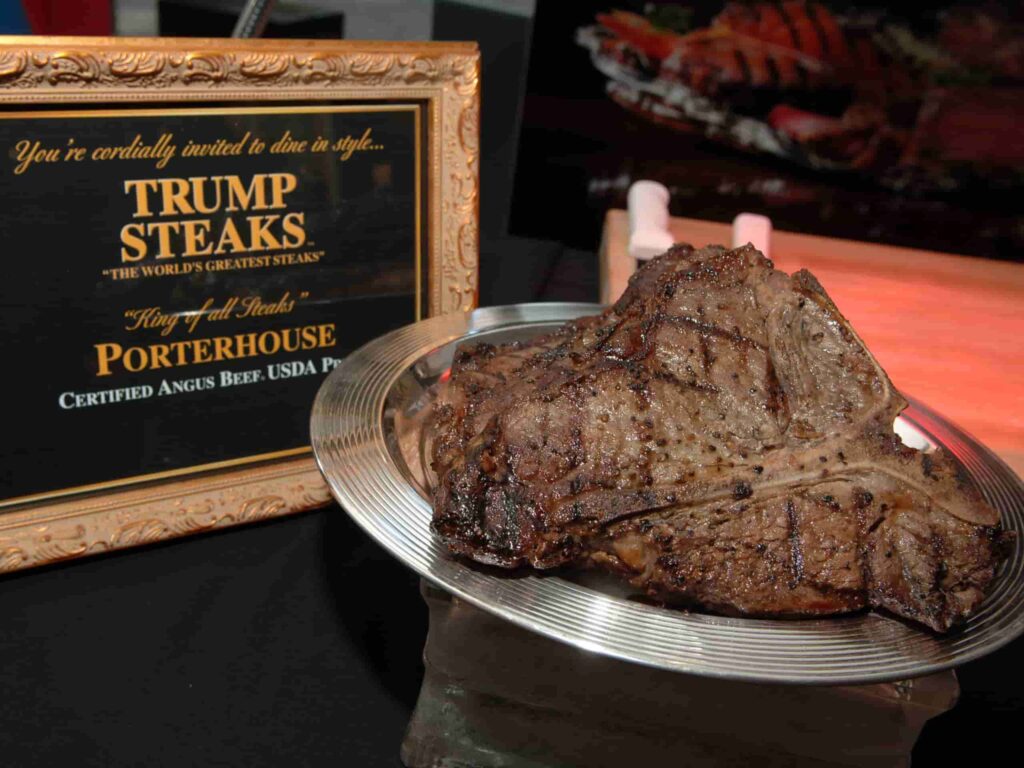
Miss Universe Organization: Trump acquired the Miss Universe Organization in 1996, which included the Miss Universe, Miss USA, and Miss Teen USA pageants. Under Trump’s ownership, the pageants gained increased media attention, though they were not without controversy. Trump sold his stake in the organization in 2015.
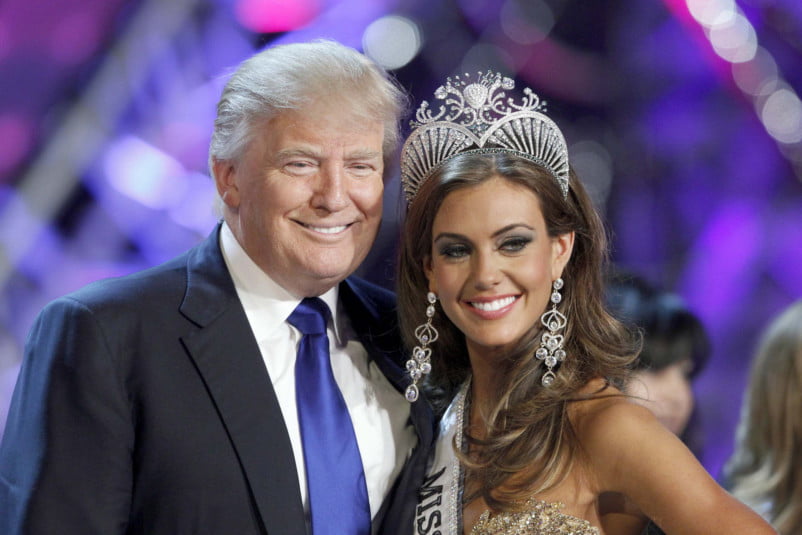
Trump University: Founded in 2005, Trump University offered courses on real estate, entrepreneurship, and wealth management. The venture was highly controversial, as students claimed they were misled by false promises and aggressive sales tactics. Trump University was the subject of multiple lawsuits, and in 2016, Trump agreed to a $25 million settlement without admitting any wrongdoing.
These ventures illustrate Trump’s willingness to leverage his brand across a wide range of industries. While not all of these businesses were successful, they contributed to the Trump brand’s pervasive presence in American culture.
Personal Life
Marriages and Divorces
Donald Trump’s personal life has been as public and scrutinized as his business ventures. His relationships and marriages have often made headlines, reflecting the blend of glamour, controversy, and drama that surrounds his life.
Ivana Trump: Donald Trump’s first marriage was to Ivana Zelníčková, a Czech model and former professional skier, in 1977. Ivana played a significant role in Trump’s business, holding key positions within the Trump Organization, including the management of the Plaza Hotel. The couple had three children together: Donald Jr., Ivanka, and Eric. Their marriage, however, was marked by turbulence, and by the early 1990s, rumors of Trump’s affair with Marla Maples had become public. The couple divorced in 1992, in a highly publicized and contentious split.
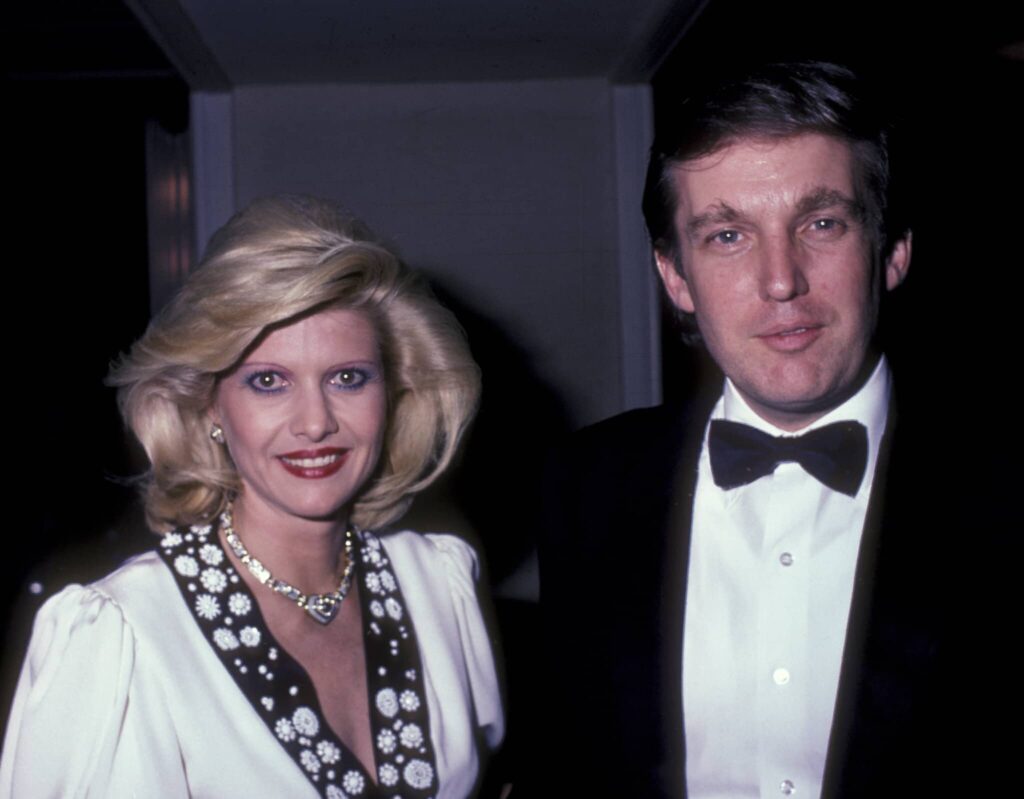
Marla Maples: Trump’s second marriage was to Marla Maples, an actress and television personality, in 1993. The couple had a daughter, Tiffany Trump, born in the same year. However, this marriage was also short-lived, and they divorced in 1999. Maples’ relationship with Trump was often in the spotlight, with their marriage seen as less stable and more celebrity-driven than his first.
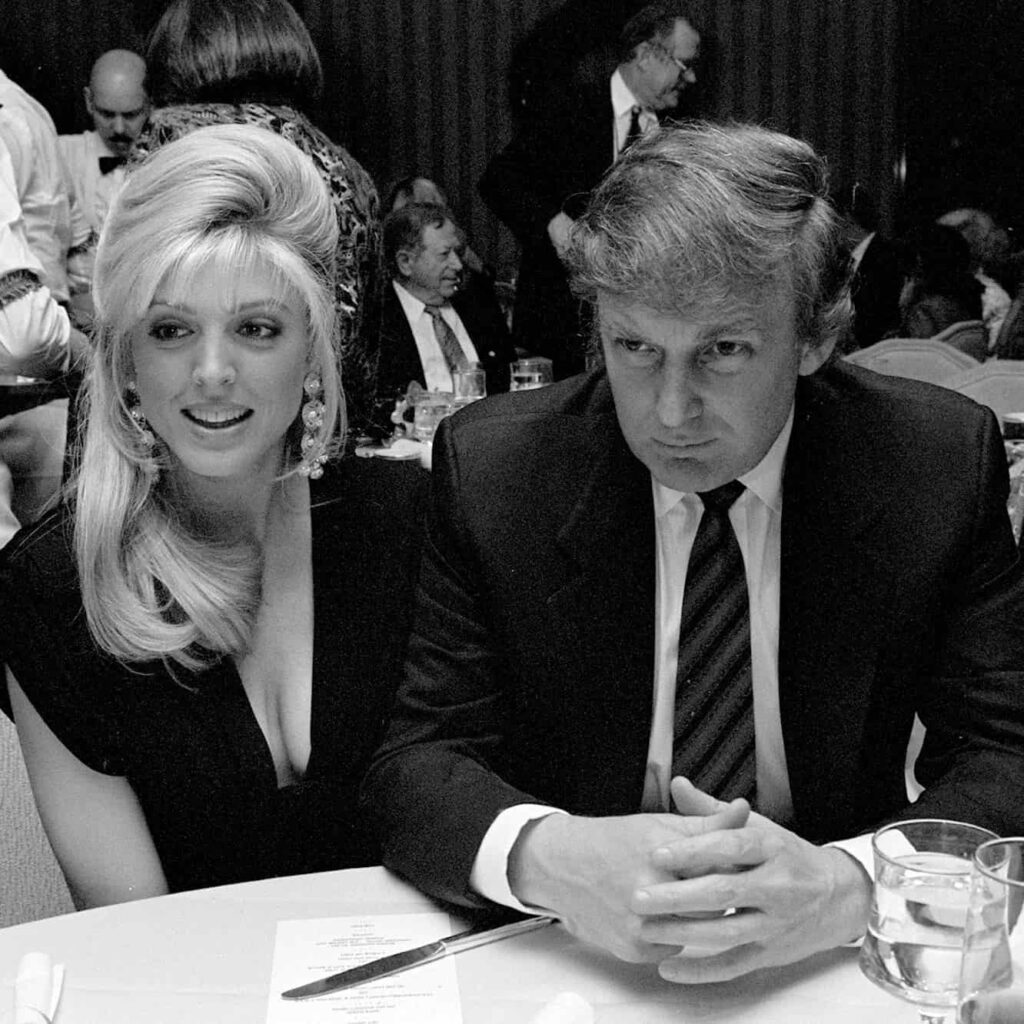
Melania Trump: In 2005, Trump married Melania Knauss, a Slovenian model. The wedding was a lavish affair, attended by celebrities and prominent figures, including future political rival Hillary Clinton. Melania has maintained a more reserved public profile compared to Trump’s previous wives, focusing on her role as First Lady during Trump’s presidency. The couple has one son, Barron Trump, born in 2006.
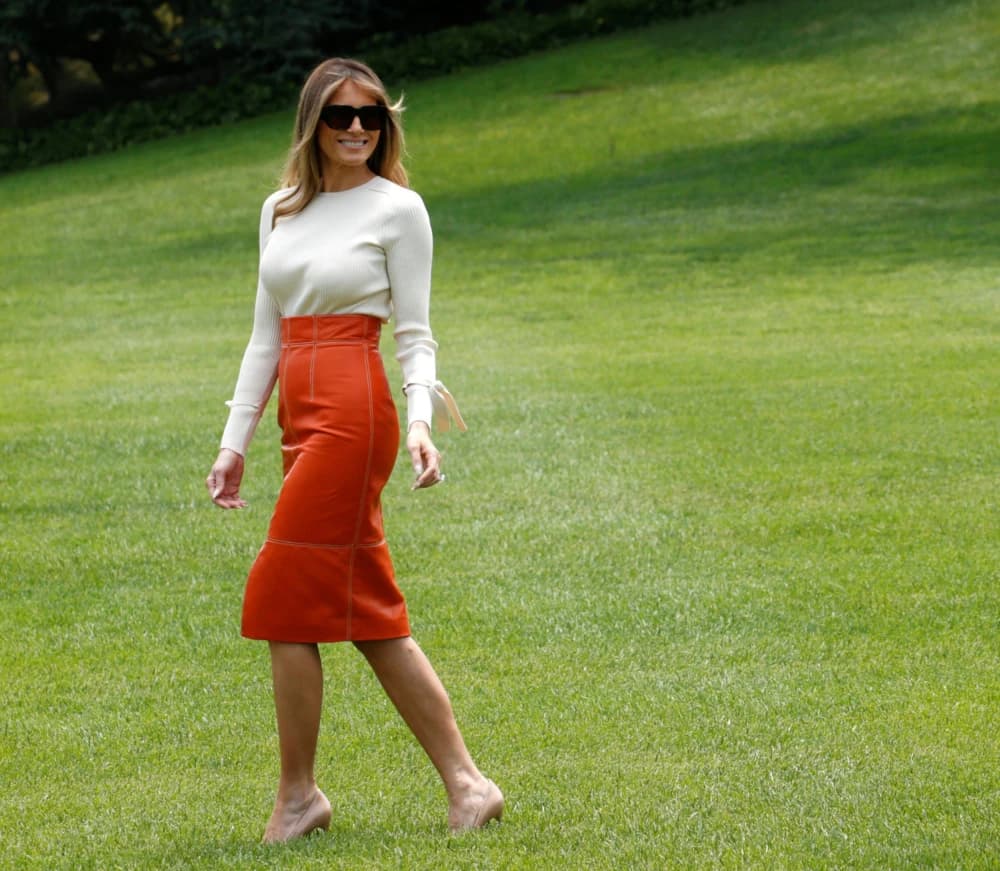
Trump’s marriages have played a significant role in shaping his public image. His relationships often mirrored the excess and controversy of his business ventures, attracting media attention and public scrutiny. Each of his marriages and divorces has been a topic of extensive coverage, reflecting the intersection of his personal and public lives.
Children
Donald Trump has five children from his three marriages, each of whom has played varying roles in his business and political life:
Donald Trump Jr.: Born in 1977, Donald Jr. is Trump’s eldest son and has been closely involved in the Trump Organization. He has managed various aspects of the family business, particularly after his father’s presidency, alongside his brother Eric. Donald Jr. is also a prominent political figure, actively supporting his father’s campaigns and becoming a popular figure among Trump’s political base.
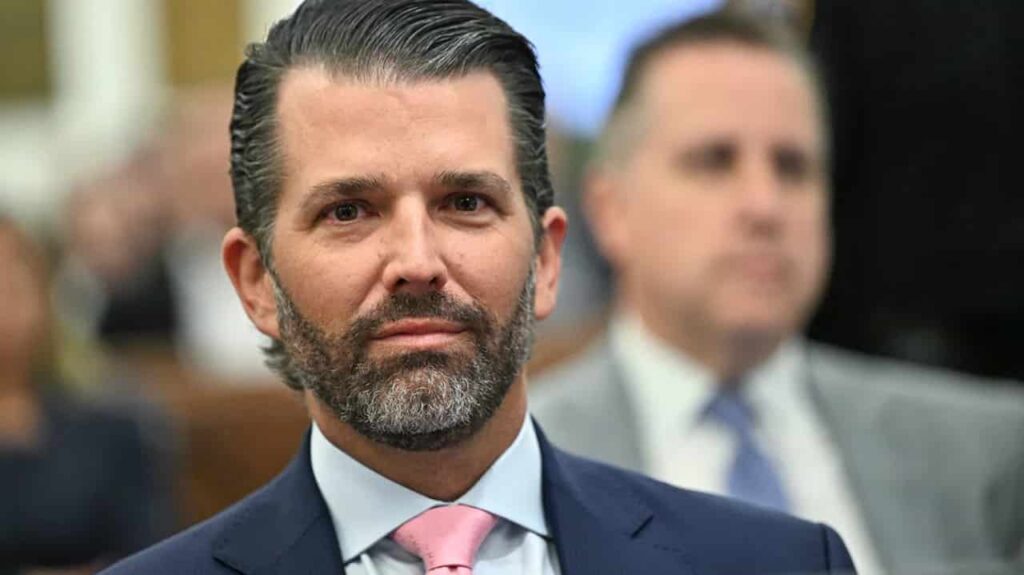
Ivanka Trump: Born in 1981, Ivanka is perhaps the most well-known of Trump’s children. She has held key roles within the Trump Organization, overseeing development and acquisitions. Ivanka also launched her own fashion and lifestyle brand, though she stepped away from it when she became an official advisor to her father during his presidency. Ivanka’s role in the White House, particularly in areas related to women’s empowerment and workforce development, made her one of the most influential figures in the Trump administration.
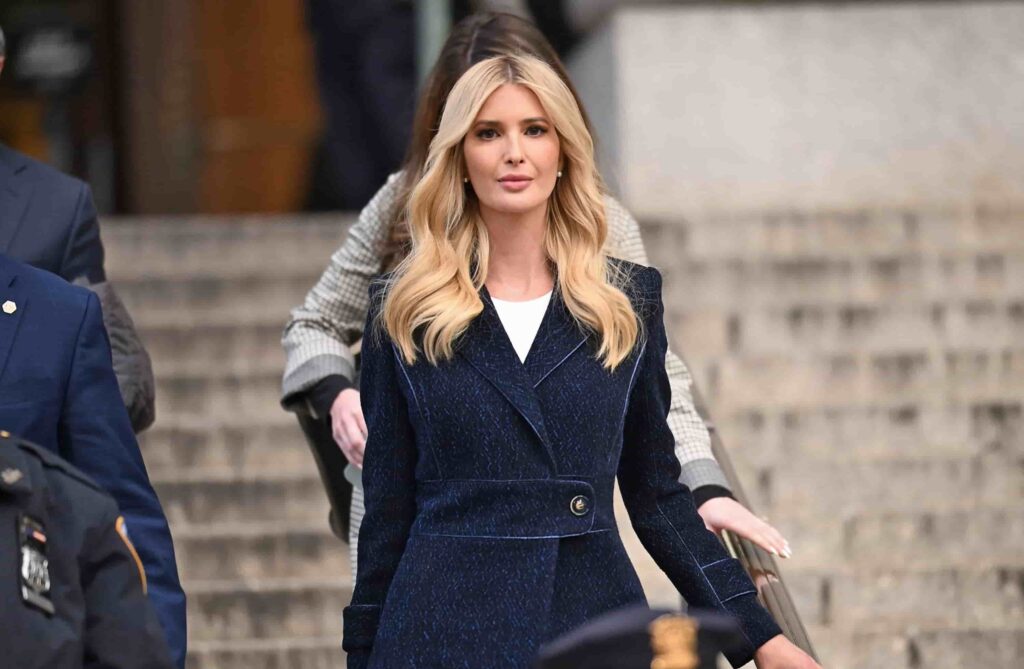
Eric Trump: Born in 1984, Eric has worked alongside his brother Donald Jr. in managing the Trump Organization’s day-to-day operations. Like his siblings, Eric was actively involved in his father’s political campaigns and has been a vocal supporter of Trump’s policies and legacy.
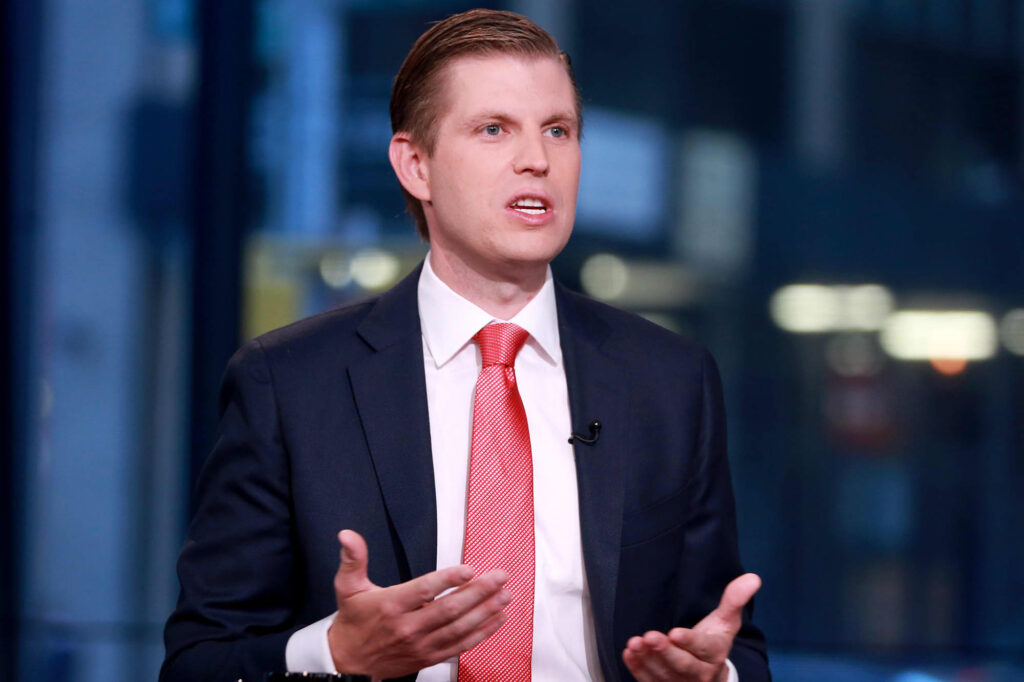
Tiffany Trump: Born in 1993 to Trump and Marla Maples, Tiffany has maintained a lower profile compared to her older siblings. She studied law and has made occasional appearances in support of her father, particularly during his 2016 and 2020 presidential campaigns.

Barron Trump: Born in 2006 to Trump and Melania, Barron has largely been shielded from the public eye due to his young age. As the youngest of Trump’s children, his life has been more private, though he was occasionally seen with his parents during Trump’s presidency.

Trump’s relationships with his children are often characterized by a combination of personal affection and professional collaboration. His older children, particularly Donald Jr., Ivanka, and Eric, have played significant roles in the Trump Organization and have been key figures in his political endeavors.
Affairs and Relationships
Donald Trump’s personal life has been marked by several high-profile affairs and relationships that have attracted significant media attention. The most notable of these was his affair with Marla Maples during his marriage to Ivana Trump. The affair became public knowledge in the late 1980s and was a major factor in Trump’s divorce from Ivana. The media coverage of the affair and subsequent divorce was intense, reflecting Trump’s status as a public figure whose personal life was as newsworthy as his business ventures.
In addition to his marriages, Trump has been linked to various other women over the years, often leading to speculation and controversy. His relationships have been the subject of numerous tabloid stories, and his approach to romance has often mirrored his larger-than-life persona.
Trump’s relationships and affairs have also intersected with his public image and political career. Allegations of sexual misconduct and infidelity have been recurring themes, particularly during his 2016 presidential campaign. Despite these controversies, Trump’s supporters have largely remained loyal, often dismissing such stories as media sensationalism.
Lifestyle and Public Persona
Donald Trump’s lifestyle has long been a subject of fascination and scrutiny. He is known for his opulent tastes, grandiose living arrangements, and a penchant for luxury that reflects his brand. Trump’s primary residence for many years was the penthouse atop Trump Tower in Manhattan, a lavishly decorated apartment that exemplifies his love for gold, marble, and luxury. The apartment has been featured in numerous magazines and television shows, often described as a symbol of Trump’s success and wealth.
In addition to his New York residence, Trump has owned several other properties that reflect his extravagant lifestyle. Mar-a-Lago, his estate in Palm Beach, Florida, is perhaps the most famous of these. Originally built by heiress Marjorie Merriweather Post in the 1920s, Trump purchased the estate in 1985 and transformed it into a private club while maintaining a private residence on the property. Mar-a-Lago has become a symbol of Trump’s wealth and influence, serving as a winter retreat and a venue for high-profile events.
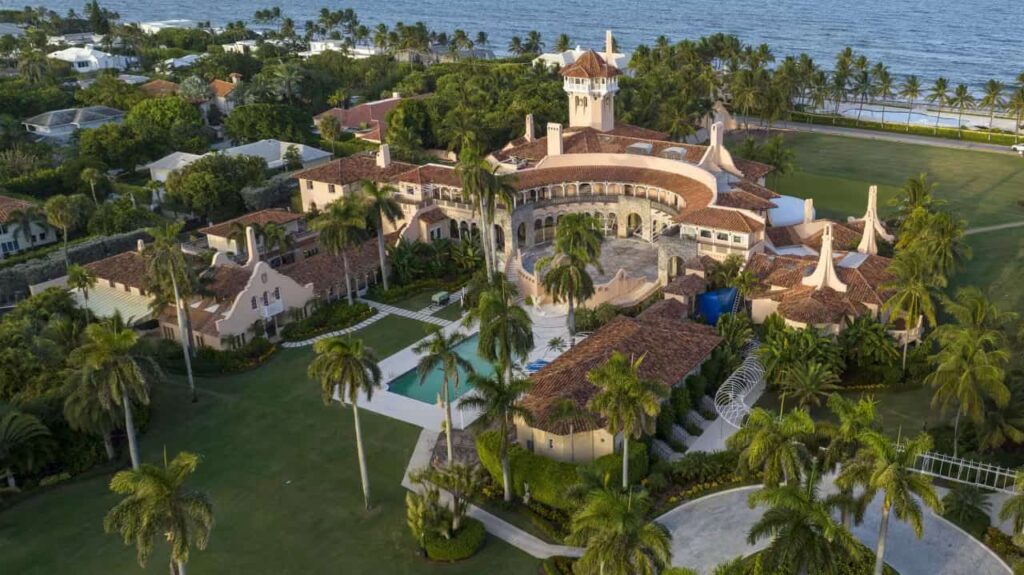
Trump’s lifestyle extends beyond his residences to his hobbies and personal interests. He is an avid golfer, owning several golf courses worldwide, and often spends weekends at his properties playing the sport. Trump’s love for golf has been a consistent theme throughout his life, and it has also played a role in his business ventures, with Trump-branded golf courses forming a significant part of his real estate portfolio.
Trump’s public persona is characterized by his confidence, assertiveness, and a flair for self-promotion. He has carefully cultivated an image as a successful businessman, a tough negotiator, and a no-nonsense leader. This persona has been both a strength and a source of controversy, as Trump’s brash style and willingness to challenge norms have attracted both admiration and criticism.
Political Career
Initial Forays into Politics
Donald Trump’s interest in politics dates back several decades before his eventual run for the presidency. Over the years, Trump flirted with the idea of running for public office multiple times and made various statements and moves that indicated a growing interest in the political arena.
In the 1980s, Trump began to publicly express his views on various political issues, particularly in the realm of economics and foreign policy. He was critical of the United States’ trade deals, arguing that they were disadvantageous to the country and allowed other nations to take advantage of American generosity. Trump also voiced concerns about the state of the U.S. economy, particularly during the recession of the early 1990s, and criticized the leadership of then-President George H.W. Bush.
Trump’s first serious foray into politics came in 1999 when he briefly explored the possibility of running for president as a candidate for the Reform Party, a third-party founded by businessman Ross Perot. Trump’s potential candidacy was marked by his usual bravado, as he positioned himself as a successful outsider who could bring a business-oriented approach to government. However, the campaign never gained significant traction, and Trump eventually withdrew from the race.
Throughout the 2000s, Trump continued to remain a vocal commentator on political matters, often appearing on television to discuss current events and share his opinions. He criticized both Republican and Democratic leaders and continued to build his brand as a straight-talking, successful businessman. His political views during this period were somewhat eclectic, reflecting a blend of conservative, populist, and nationalist sentiments.
2016 Presidential Campaign
Donald Trump’s decision to run for president in 2016 was met with widespread skepticism and surprise. On June 16, 2015, Trump announced his candidacy for the Republican nomination in a speech delivered at Trump Tower. In this now-famous speech, Trump outlined his vision for America, focusing on issues such as immigration, trade, and national security. His controversial statements, particularly his remarks about Mexican immigrants, immediately drew media attention and set the tone for what would be an unconventional campaign.
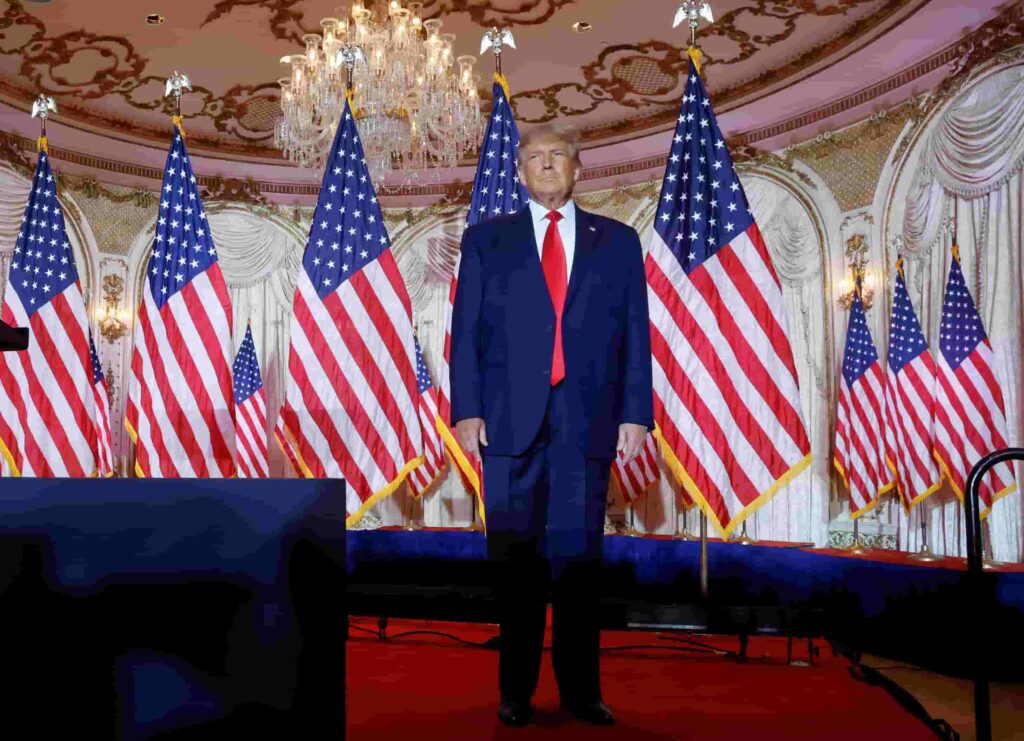
From the outset, Trump’s campaign was marked by its outsider status and populist appeal. He positioned himself as a non-politician who could challenge the political establishment and “drain the swamp” in Washington, D.C. Trump’s rhetoric resonated with many Americans who felt disillusioned with traditional politicians and were looking for a leader who could shake up the system.
Trump’s campaign also made extensive use of social media, particularly Twitter, where he frequently posted messages directly to his followers. His unfiltered style and willingness to speak his mind, often in provocative or incendiary terms, helped him build a loyal base of supporters. Trump’s ability to dominate the media cycle, combined with his extensive name recognition, made him a formidable candidate despite widespread doubts about his viability.
Throughout the Republican primary, Trump faced a crowded field of experienced politicians, including Jeb Bush, Marco Rubio, Ted Cruz, and John Kasich. Despite being initially dismissed by many pundits, Trump quickly emerged as the front-runner, winning primary after primary. His ability to tap into the frustrations of a significant portion of the Republican electorate, particularly on issues like immigration and trade, propelled him to the nomination.
The general election campaign against Democratic nominee Hillary Clinton was one of the most contentious and closely watched in American history. Trump’s campaign focused on themes of economic nationalism, law and order, and opposition to political correctness. He promised to renegotiate trade deals, build a wall along the U.S.-Mexico border, and bring jobs back to America. His rallies drew large, enthusiastic crowds, and his messaging resonated with many voters in key swing states.
The campaign was also marked by numerous controversies, including the release of the Access Hollywood tape, where Trump was recorded making lewd comments about women. Even though he lost the popular vote to Clinton by almost three million votes, Trump was able to secure the electoral votes required to win the presidency and retain significant support from his base in spite of these and other scandals.
Trump’s victory on November 8, 2016, stunned many political observers and marked the beginning of a new and unpredictable era in American politics.
Key Campaign Issues
Immigration: Immigration was a central theme of Trump’s 2016 campaign. He vowed to build a wall on the southern border to prevent illegal immigration and promised to enforce stricter immigration laws. His stance on immigration was often controversial, particularly his proposal for a temporary ban on Muslims entering the United States, which he framed as a measure to protect national security.
Trade: Trump campaigned on a platform of economic nationalism, criticizing existing trade deals like NAFTA (North American Free Trade Agreement) and the Trans-Pacific Partnership (TPP). He argued that these deals were bad for American workers and promised to renegotiate them to ensure they were more favorable to the United States.
Jobs and Economy: Trump promised to bring back manufacturing jobs to the United States, which he argued had been lost due to unfair trade practices and overregulation. He also advocated for significant tax cuts and deregulation to spur economic growth.
National Security: Trump’s campaign emphasized the need for a strong military and a tougher approach to combating terrorism. He criticized the Obama administration’s foreign policy, particularly its handling of the wars in Iraq and Afghanistan, and promised to pursue a more assertive approach to national security.
“Drain the Swamp”: One of Trump’s key slogans was “Drain the Swamp,” which encapsulated his promise to rid Washington, D.C., of corruption and special interests. He positioned himself as an outsider who would bring a new approach to governance and reduce the influence of lobbyists and bureaucrats.
Controversial Moments
Trump’s 2016 campaign was marked by numerous controversial moments that generated significant media attention and public debate:
The Access Hollywood Tape: In October 2016, just weeks before the election, a 2005 recording of Trump making lewd comments about women was leaked to the media. In the tape, Trump bragged about kissing and groping women without their consent. After the recording caused a lot of controversy, Trump was urged to withdraw from the competition, but he turned it down, publicly apologizing and labeling the remarks as “locker room talk.”
Clashes with Opponents: Throughout the campaign, Trump was known for his aggressive and often personal attacks on his opponents, both in the Republican primary and the general election. He frequently referred to his opponents with derogatory nicknames, such as “Lyin’ Ted” for Ted Cruz and “Crooked Hillary” for Hillary Clinton. These attacks were polarizing but also helped solidify his image as a fighter who would take on the establishment.
Debates and Rallies: Trump’s performances in the presidential debates were unorthodox and often combative. He frequently interrupted his opponents, made controversial statements, and challenged traditional debate norms. His rallies, meanwhile, were characterized by their large, enthusiastic crowds and the often incendiary rhetoric used by Trump. His willingness to speak off the cuff and address his supporters directly set him apart from other candidates.
Russian Interference: Throughout the campaign, there were allegations of Russian interference in the election, including hacking of Democratic National Committee emails and dissemination of information damaging to the Clinton campaign. These allegations would later become a central focus of investigations into Trump’s presidency.
Presidency (2017-2021)
Donald Trump’s presidency was one of the most tumultuous and divisive in American history. From his unconventional style to his policy decisions and the numerous controversies that surrounded his administration, Trump’s four years in office were marked by significant achievements, intense public debate, and profound changes to the political landscape.
Domestic Policies
Healthcare: One of Trump’s first major legislative efforts was to repeal and replace the Affordable Care Act (ACA), also known as Obamacare. Despite multiple attempts, Republicans in Congress were unable to fully repeal the ACA, though they did manage to eliminate the individual mandate, which required Americans to have health insurance or pay a penalty.
Tax Reform: In December 2017, Trump signed the Tax Cuts and Jobs Act into law, the most significant overhaul of the U.S. tax code in decades. The law reduced corporate tax rates from 35% to 21% and made changes to individual tax rates, aiming to stimulate economic growth. The tax cuts were controversial, with supporters arguing they would boost the economy and critics claiming they primarily benefited the wealthy and increased the federal deficit.
Immigration: Trump’s administration took a hardline stance on immigration, implementing policies aimed at reducing both legal and illegal immigration. These included the contentious “zero tolerance” policy that resulted in the division of immigrant families at the border between the United States and Mexico, the travel ban aimed at a number of nations with a majority of Muslims, and the initiatives to terminate the Deferred Action for Childhood Arrivals (DACA) program. Trump also continued to push for the construction of a border wall, though much of the funding for the project was obtained through reallocation of military funds after Congress refused to fully fund it.
Judicial Appointments: Trump made a significant impact on the federal judiciary, appointing three Supreme Court justices—Neil Gorsuch, Brett Kavanaugh, and Amy Coney Barrett—shifting the Court to a more conservative stance. Additionally, Trump appointed over 200 federal judges, ensuring a long-lasting influence on the American legal system.
Foreign Policies
Trade: Trump fulfilled his campaign promise to renegotiate trade deals, most notably replacing NAFTA with the United States-Mexico-Canada Agreement (USMCA), which included provisions aimed at increasing U.S. manufacturing and protecting American workers. Trump also engaged in a trade war with China, imposing tariffs on Chinese goods and prompting retaliatory measures from Beijing. The trade conflict was aimed at addressing issues like intellectual property theft and trade imbalances but had mixed economic impacts.
North Korea: Trump’s approach to North Korea marked a departure from previous administrations. After a period of escalating tensions, including threats of nuclear war, Trump shifted to diplomacy, holding three historic summits with North Korean leader Kim Jong-un. While the summits produced symbolic gestures and a temporary reduction in hostilities, they did not result in a comprehensive agreement on denuclearization.
NATO and Allies: Trump’s foreign policy often challenged traditional alliances. He criticized NATO members for not meeting their defense spending commitments and suggested the U.S. might not honor its security guarantees if allies did not contribute more. His administration also took a confrontational approach to relations with traditional European allies, while simultaneously pursuing closer ties with leaders like Vladimir Putin of Russia.
Middle East: Trump’s Middle East policy was marked by a strong alignment with Israel. His government relocated the American embassy to Jerusalem after acknowledging it as the capital of Israel. This action drew harsh criticism from the Palestinian leadership as well as numerous foreign observers. Trump also brokered the Abraham Accords, normalizing relations between Israel and several Arab nations, which was hailed as a significant diplomatic achievement.
Impeachments
The only American president to face two impeachments by the House of Representatives is Donald Trump. Both impeachments were highly contentious and reflected the deep partisan divides that characterized his presidency.
First Impeachment (2019): The first impeachment arose from allegations that Trump had abused his power by pressuring Ukraine to investigate Joe Biden, his potential rival in the 2020 election. The charges centered on a phone call between Trump and Ukrainian President Volodymyr Zelensky, during which Trump allegedly conditioned military aid on Ukraine’s willingness to announce an investigation into Biden. Trump was impeached by the House of Representatives on two grounds: misuse of authority and obstruction of Congress. The Senate trial, however, resulted in Trump’s acquittal, with Republicans arguing that the charges did not warrant removal from office.
Second Impeachment (2021): The second impeachment followed the January 6th attack on the U.S. Capitol, which occurred after Trump had spent weeks challenging the results of the 2020 presidential election. Trump was impeached for “incitement of insurrection,” with the House charging that his rhetoric and actions had directly contributed to the violence that ensued. The Senate trial took place after Trump had left office, and although a majority of senators voted to convict, the required two-thirds majority was not reached, resulting in another acquittal.
Controversies and Scandals
Trump’s presidency was marked by numerous controversies and scandals, many of which were unprecedented in modern American politics. Some of the most notable include:
Russian Interference and the Mueller Investigation: Throughout Trump’s presidency, allegations of Russian interference in the 2016 election and potential collusion with Trump’s campaign dominated headlines. The investigation, led by Special Counsel Robert Mueller, did not establish a criminal conspiracy between Trump’s campaign and Russia but did detail extensive contacts between the two and efforts by Trump to obstruct the investigation. The report’s findings were heavily debated, with Trump’s supporters viewing it as a vindication and his critics arguing it revealed significant misconduct.
Charlottesville and Race Relations: In August 2017, a white nationalist rally in Charlottesville, Virginia, led to violence and the death of a counter-protester. Trump’s response, in which he stated that there were “very fine people on both sides,” was widely criticized as equivocating on the issue of white supremacy. The incident highlighted ongoing concerns about race relations and Trump’s handling of issues related to racism and extremism.
COVID-19 Pandemic: The COVID-19 pandemic was perhaps the defining crisis of Trump’s presidency. His administration’s response was widely criticized for downplaying the severity of the virus, inconsistent messaging, and conflicts with public health officials. Trump himself contracted the virus in October 2020, further complicating the administration’s response. The pandemic had a significant impact on the 2020 election, with Trump’s handling of the crisis becoming a central issue.
2020 Presidential Campaign
Donald Trump’s bid for re-election in 2020 was marked by a deeply polarized political environment and the unprecedented challenges posed by the COVID-19 pandemic. His opponent, former Vice President Joe Biden, ran a campaign focused on restoring “the soul of America” and presented himself as a steady, experienced leader capable of handling the ongoing crisis.
The 2020 campaign was unlike any other in modern American history. The pandemic forced both campaigns to adjust their strategies, with traditional rallies and events being replaced by virtual gatherings and socially distanced appearances. Trump, however, continued to hold large rallies, often downplaying the risks associated with the virus and promoting a return to normalcy.
Key issues in the campaign included the economy, the handling of the pandemic, racial justice, and law and order. Trump positioned himself as the candidate who could restore economic growth and protect American values, while Biden emphasized his plan to manage the pandemic, address systemic racism, and unite the country.
Despite the challenges of the pandemic, voter turnout in 2020 was the highest in over a century, with more than 159 million Americans casting ballots. The election was highly contested, with Trump and his allies repeatedly claiming that the results were fraudulent, particularly in key battleground states. These claims led to numerous lawsuits, most of which were dismissed by the courts.
Election Fraud Claims
After the election, Trump refused to concede, alleging widespread voter fraud and irregularities. His claims were supported by many of his most ardent supporters and were amplified by certain media outlets and political figures. Despite multiple recounts, audits, and investigations, no substantial evidence of widespread fraud was found, and the results were certified by all 50 states.
The false claims of a stolen election culminated in the January 6th attack on the U.S. Capitol, where a violent mob of Trump supporters attempted to stop the certification of the electoral votes. The attack resulted in five deaths and numerous injuries, leading to widespread condemnation and Trump’s second impeachment.
Financial Profile
Net Worth
Donald Trump’s Net Worth: A Detailed Breakdown of His $7.5 Billion Fortune
Donald Trump’s wealth has been a topic of debate and fascination for decades, with various estimates and speculations floating around the public domain. As of May 2, 2024, Forbes has put a definitive number on it: $7.5 billion. This valuation, while subject to fluctuations in the market and other factors, provides a comprehensive snapshot of Trump’s financial empire. Here’s an asset-by-asset breakdown of how the former president’s fortune is structured, shedding light on the sources of his vast wealth.
Truth Social’s Parent Company: $5.6 Billion
The most significant contributor to Trump’s net worth is the parent company of Truth Social, his social media platform. As of May 2024, this asset is valued at a staggering $5.6 billion. The platform was launched as a conservative alternative to mainstream social media, appealing primarily to Trump’s political base. Despite facing numerous challenges, including regulatory scrutiny and competition from other platforms, Truth Social has managed to carve out a lucrative niche. The platform’s success is largely attributed to its loyal user base and the influence Trump continues to wield in American politics. The valuation of $5.6 billion underscores the platform’s pivotal role in Trump’s financial portfolio.
Real Estate Holdings: $1.1 Billion
Real estate has always been at the core of Donald Trump’s business empire. From his early days as a developer in New York City to his global expansion, Trump has built a name synonymous with luxury properties. As of March 2024, Trump’s real estate holdings are estimated to be worth $1.1 billion. This includes a mix of commercial and residential properties, many of which bear the Trump name. Notably, his real estate portfolio has seen fluctuations over the years due to market conditions, legal battles, and changes in the business environment. However, it remains a significant part of his wealth, reflecting his enduring presence in the real estate market.
Clubs & Resorts: $810 Million
Trump’s portfolio of clubs and resorts contributes an estimated $810 million to his net worth. These assets include some of the most prestigious golf courses and resorts in the world, such as Mar-a-Lago in Florida and Trump National Golf Club in Bedminster, New Jersey. These properties not only serve as luxury destinations but also as symbols of Trump’s brand. The value of these clubs and resorts is bolstered by their exclusivity and the premium experiences they offer. Despite the occasional controversies and legal challenges, these properties continue to be profitable, attracting a wealthy clientele who associate the Trump name with luxury.
Cash Reserves: $410 Million
As of March 2024, Trump holds approximately $410 million in cash reserves. This significant liquidity is a testament to his ability to maintain a substantial cash flow, despite the financial ups and downs he has faced over the years. Having such a large cash reserve allows Trump to be agile in his business dealings, enabling him to seize opportunities and manage risks effectively. It also provides a buffer against potential legal and financial challenges, which have been a recurring theme in his career.
Other Assets: $100 Million
In addition to his more prominent assets, Trump owns a collection of other assets valued at $100 million. These include private jets, yachts, and other luxury items that contribute to his overall net worth. While these assets are not as significant as his real estate holdings or Truth Social, they are nonetheless important in painting a complete picture of his wealth. These assets reflect Trump’s lavish lifestyle and his penchant for acquiring high-value items that enhance his public image.
Legal Liabilities: -$540 Million
No discussion of Donald Trump’s net worth would be complete without addressing his legal liabilities, which amount to a substantial $540 million. Over the years, Trump has faced numerous lawsuits, legal battles, and financial obligations that have taken a toll on his wealth. These liabilities stem from a variety of sources, including business disputes, regulatory fines, and settlements. The $540 million in legal liabilities underscores the challenges Trump faces in maintaining and growing his wealth amidst ongoing legal entanglements.
The Complexity of Trump’s Financial Empire
Donald Trump’s net worth of $7.5 billion, as of May 2, 2024, is a testament to his enduring influence and business acumen. However, it also highlights the complexities and challenges of managing such a vast fortune. With assets spread across various sectors, from social media to real estate, and significant legal liabilities, Trump’s financial empire is as multifaceted as the man himself. While the future of his wealth remains uncertain, especially in light of ongoing legal and political challenges, Trump’s ability to adapt and navigate these waters will undoubtedly play a crucial role in shaping his financial legacy.
Taxes and Financial Controversies
Trump’s taxes have been a subject of controversy for many years. During his 2016 presidential campaign, Trump broke with tradition by refusing to release his tax returns, citing an ongoing IRS audit. This refusal led to widespread speculation about the reasons behind it and whether Trump was hiding something from the public.
In September 2020, The New York Times published a report based on leaked tax records, revealing that Trump had paid only $750 in federal income taxes in 2016 and 2017 and had paid no income taxes in 10 of the previous 15 years. The report also detailed significant financial losses claimed by Trump, which allowed him to reduce his tax liabilities. These revelations sparked a firestorm of criticism and renewed calls for greater transparency in the financial dealings of elected officials.
Trump has consistently denied any wrongdoing, arguing that he simply took advantage of the tax laws to minimize his tax burden. He has also claimed that the losses reported were due to depreciation and other legal accounting methods. Nevertheless, the controversy over his taxes has raised questions about his financial practices and the true extent of his wealth.
Bankruptcies and Debt
Donald Trump’s business career has been marked by several high-profile bankruptcies, particularly in the 1990s and early 2000s. These bankruptcies were primarily related to his casino ventures in Atlantic City, where he had overextended himself by taking on significant debt to finance his projects.
The first major bankruptcy occurred in 1991 when Trump’s flagship property, the Trump Taj Mahal, filed for Chapter 11 bankruptcy protection. The Taj Mahal had been built at a cost of nearly $1 billion, financed largely through high-interest junk bonds. The casino struggled to generate enough revenue to service its debt, leading to financial distress. Trump was forced to cede a portion of his ownership in the casino to creditors in exchange for a reduction in debt and more favorable loan terms.
This pattern repeated itself in the following years, with Trump Plaza Hotel and Casino and Trump Castle also filing for bankruptcy. In each case, Trump managed to negotiate deals with creditors that allowed him to retain some control over the properties while reducing his debt burden. However, these bankruptcies tarnished Trump’s image as a successful businessman and raised questions about his financial management skills.
Despite these setbacks, Trump was able to rebuild his fortune in the 2000s, largely by focusing on branding and licensing deals rather than taking on large-scale development projects. His ability to recover from financial difficulties and reinvent himself as a global brand became a central theme in his public narrative.
Wealth Management
Trump’s approach to wealth management has been characterized by a mix of bold risk-taking and strategic branding. While his real estate ventures have been the backbone of his wealth, Trump has also diversified his income streams through various other business activities.
One of the key strategies in Trump’s wealth management has been his use of licensing deals. By licensing the Trump name to developers, hotels, and consumer products, Trump has been able to generate substantial revenue without the need for significant capital investment. These deals have allowed him to profit from his brand’s prestige and recognition while minimizing financial risk.
Trump has also invested in luxury properties and golf courses around the world, many of which serve as both business ventures and personal retreats. His golf courses, in particular, have become a significant part of his portfolio, with properties in the United States, Scotland, and Ireland.
However, Trump’s wealth management has not been without its challenges. His reliance on debt financing, coupled with the cyclical nature of the real estate market, has left him vulnerable to economic downturns. Additionally, his penchant for high-risk, high-reward deals has led to periods of significant financial stress, particularly during the 1990s.
Public Image and Media Relations
Media Strategy
Donald Trump’s relationship with the media has been a defining feature of his public life. From his early days as a real estate mogul to his time in the White House, Trump has consistently used the media to his advantage, understanding the power of publicity and the importance of controlling his narrative.
One of Trump’s key media strategies has been to maintain a high profile by making himself constantly available to the press. He has been known to give interviews, make off-the-cuff remarks, and engage directly with reporters, often generating headlines and driving the news cycle. Trump’s willingness to speak his mind, even when it meant courting controversy, has kept him in the public eye and ensured that his name remained synonymous with success and power.
Trump’s use of social media, particularly Twitter, was groundbreaking for a politician. His unfiltered tweets allowed him to bypass traditional media channels and communicate directly with his followers. This approach enabled him to set the agenda, respond instantly to events, and galvanize his base. Trump’s tweets often sparked media frenzies, ensuring that his messages dominated the news cycle. He recently appeared in an interview with Elon Musk , the founder of social media giant X ( formerly twitter ) where both the accomplished men were found eulogising each other.
Public Relations Tactics
Trump’s public relations tactics have been shaped by his understanding of branding and his ability to control the narrative. He has consistently portrayed himself as a successful businessman, a savvy dealmaker, and a strong leader. This image has been carefully cultivated through his business ventures, media appearances, and public statements.
One of Trump’s most effective public relations strategies has been his use of nicknames and slogans. During the 2016 campaign, he coined memorable monikers for his opponents, such as “Lyin’ Ted” Cruz and “Crooked Hillary” Clinton. These labels helped define his rivals in negative terms and reinforced his image as a straight-talking outsider.
Trump’s slogans, such as “Make America Great Again” and “America First,” resonated with a significant portion of the electorate and became rallying cries for his supporters. These slogans encapsulated Trump’s message and helped to build a cohesive narrative around his candidacy.
Trump has also been adept at turning negative press into opportunities. When faced with criticism or scandal, he has often doubled down on his positions, using the controversy to rally his base and position himself as a victim of unfair attacks by the media and the establishment.
Criticism and Parody
Throughout his career, Donald Trump has been a frequent target of criticism and parody, both in the media and popular culture. His brash style, polarizing rhetoric, and larger-than-life persona have made him a frequent subject of satire and ridicule.
Late-night comedians, political cartoonists, and television shows like “Saturday Night Live” have often lampooned Trump, focusing on his distinctive speaking style, his appearance, and his controversial statements. These parodies have contributed to the public’s perception of Trump, sometimes reinforcing the very traits that his critics find objectionable.
However, Trump has often responded to criticism with defiance, using it to fuel his narrative of being an outsider fighting against a biased media and political establishment. His ability to thrive in the face of criticism has been a key aspect of his resilience and appeal to his supporters.
Legal Issues and Controversies
Lawsuits and Legal Battles
Donald Trump’s career has been marked by a long history of legal battles, many of which have been widely publicized and have contributed to his controversial reputation. These lawsuits span a wide range of issues, including real estate disputes, defamation cases, and allegations of fraud.
One of the earliest and most significant legal challenges Trump faced was the 1973 lawsuit filed by the U.S. Department of Justice against Trump Management Corporation, alleging racial discrimination in the rental of apartments. The case was settled with a consent decree, in which Trump Management agreed to change its practices without admitting guilt. This lawsuit was one of the first major legal battles that Trump faced and set the tone for the many legal challenges that would follow.
Over the years, Trump has been involved in numerous lawsuits related to his business ventures. These include disputes with contractors, tenants, and business partners. One high-profile case was the lawsuit brought by the New York Attorney General’s office against Trump University, which alleged that the for-profit education venture had defrauded students. The case was settled in 2016 for $25 million, with Trump agreeing to pay restitution to the plaintiffs without admitting any wrongdoing.
Trump has also been involved in multiple defamation lawsuits, both as a plaintiff and a defendant. He has sued individuals and media outlets that have published critical or unflattering stories about him, often seeking damages and retractions. In some cases, Trump has prevailed, while in others, the cases have been dismissed or settled.
Investigations
Throughout his presidency, Trump was the subject of several high-profile investigations, many of which were related to allegations of misconduct or potential legal violations. The most significant of these was the investigation into Russian interference in the 2016 election, led by Special Counsel Robert Mueller.
The Mueller investigation sought to determine whether members of Trump’s campaign had colluded with Russian operatives to influence the outcome of the election and whether Trump had obstructed justice by attempting to interfere with the investigation. The final report, released in 2019, did not establish a criminal conspiracy between the Trump campaign and Russia but did outline numerous contacts between the two and detailed efforts by Trump to obstruct the investigation. The report’s findings were highly contentious, with Trump and his supporters claiming exoneration, while his critics argued that the report revealed significant misconduct.
In addition to the Mueller investigation, Trump faced several other investigations during his presidency, including inquiries into his finances, his business practices, and his actions in office. These investigations were conducted by various federal and state authorities, as well as by Congressional committees.
One of the most significant investigations was conducted by the House of Representatives, which led to Trump’s first impeachment in 2019. The investigation centered on allegations that Trump had abused his power by pressuring Ukraine to investigate Joe Biden and his son Hunter. The House’s impeachment inquiry resulted in Trump being impeached on two articles: abuse of power and obstruction of Congress. However, the Senate acquitted Trump, allowing him to remain in office.
Impeachments
As mentioned earlier, Donald Trump is the only president in U.S. history to be impeached twice. The first impeachment, in 2019, was related to Trump’s interactions with Ukraine and allegations that he had sought foreign interference in the 2020 election. Following the attack on the U.S. Capitol on January 6, 2021, there was a second impeachment attempt, based on claims that Trump had instigated the uprising.
Both impeachments were deeply divisive and reflected the intense partisan polarization of the Trump era. In both cases, Trump was acquitted by the Senate, as the required two-thirds majority for conviction was not reached.
The impeachments had significant political and legal implications, contributing to the contentious atmosphere in Washington and shaping the legacy of Trump’s presidency. They also underscored the deep divisions within the country, with Trump’s supporters viewing the impeachments as politically motivated attacks, while his critics saw them as necessary actions to hold him accountable for his conduct.
Cultural Impact
Pop Culture Icon
Donald Trump has been a significant figure in American pop culture for decades, long before he entered the political arena. His larger-than-life persona, wealth, and media presence made him a fixture in movies, television shows, music, and other forms of entertainment.
Trump’s pop culture presence began in the 1980s, when he became known as a symbol of wealth and success in the United States. He made cameo appearances in movies such as “Home Alone 2: Lost in New York” and “The Little Rascals,” and he was frequently mentioned in television shows, songs, and books. Trump’s image as a successful businessman and real estate mogul was further reinforced by his appearances in commercials and on talk shows.
The success of “The Apprentice” in the 2000s elevated Trump’s status as a pop culture icon. The show portrayed him as a tough, no-nonsense boss who made high-stakes decisions, and his catchphrase “You’re fired!” became widely recognized. “The Apprentice” not only solidified Trump’s image as a business leader but also expanded his appeal to a broader audience.
Trump’s involvement in pop culture continued during his presidency, where he remained a frequent subject of satire, parody, and criticism. Television shows like “Saturday Night Live” regularly featured sketches lampooning Trump, often focusing on his distinctive speaking style, mannerisms, and controversial statements.
Despite the often negative portrayals, Trump’s impact on pop culture is undeniable. He has become a symbol of American capitalism, ambition, and controversy, and his influence extends far beyond the political sphere.
Political and Social Influence
Donald Trump’s political and social influence has been profound, both in the United States and around the world. His presidency marked a significant shift in American politics, characterized by the rise of populism, nationalism, and a rejection of traditional political norms.
In the United States, Trump’s influence was most evident in the transformation of the Republican Party. Under his leadership, the party shifted away from its traditional conservative platform to embrace a more populist and nationalist agenda. Issues such as immigration, trade, and national security became central to the party’s identity, and Trump’s style of politics—marked by direct communication with voters, a disdain for political correctness, and a willingness to challenge established norms—became the dominant force within the GOP.
Trump’s influence extended beyond policy to the broader political culture. He galvanized a significant portion of the American electorate, particularly white working-class voters who felt alienated by globalization and the changing cultural landscape. His rhetoric, often characterized by its simplicity and directness, resonated with voters who felt that traditional politicians were out of touch with their concerns.
Internationally, Trump’s presidency had a significant impact on global politics. His “America First” foreign policy, characterized by a focus on national sovereignty and a rejection of multilateralism, challenged the post-World War II international order. Trump’s approach to international relations often involved direct engagement with authoritarian leaders, a focus on bilateral trade deals, and a willingness to challenge long-standing alliances.
Trump’s influence also extended to social movements, both supportive and oppositional. His presidency saw the rise of movements such as the alt-right and increased polarization around issues of race, gender, and identity. At the same time, opposition to Trump fueled the growth of progressive movements and activism, including the Women’s March, Black Lives Matter, and the resistance against his immigration policies.
Legacy
Donald Trump’s legacy is a subject of intense debate and will likely continue to be so for years to come. Supporters view him as a transformative figure who challenged the political establishment, revitalized the American economy, and prioritized the interests of ordinary Americans. They credit him with appointing conservative judges, securing tax cuts, renegotiating trade deals, and taking a tough stance on immigration and national security.
Critics, on the other hand, argue that Trump’s legacy is one of division, erosion of democratic norms, and damage to the country’s global standing. They point to his handling of the COVID-19 pandemic, his attempts to overturn the results of the 2020 election, and his inflammatory rhetoric as evidence of the harm his presidency caused to American society and institutions.
Trump’s legacy will also be shaped by his impact on the Republican Party and American politics more broadly. He redefined what it means to be a Republican, shifting the party’s focus towards a more populist, nationalist agenda. This realignment may have long-lasting effects on the party and American politics, influencing the issues and candidates that dominate future elections.
Internationally, Trump’s legacy is likely to be viewed through the lens of his foreign policy decisions, particularly his approach to global alliances, trade, and relations with authoritarian regimes. His presidency marked a departure from the traditional American leadership role in the international community, and the long-term consequences of this shift are still being debated.
Ultimately, Trump’s legacy is a complex and multifaceted one, encompassing significant achievements, profound controversies, and a lasting impact on American and global politics.
Personal Eccentricities and Characteristics
Personality Traits
Donald Trump’s personality has been a central aspect of his public life, shaping both his business career and his political image. He is known for his confidence, assertiveness, and a relentless drive for success. These traits have been both admired and criticized, contributing to his polarizing public image.
One of Trump’s most distinctive personality traits is his self-confidence. He often portrays himself as a winner, someone who excels at whatever he undertakes. This confidence has been a key factor in his ability to take on large, risky ventures and to recover from setbacks. Trump’s belief in his own abilities is often reflected in his public statements, where he frequently touts his accomplishments and downplays his failures.
Trump is also known for his assertiveness and aggressive approach to deal-making. He has a reputation for being a tough negotiator, unafraid to challenge others and push for the best possible outcome. This trait was evident in his business dealings, where he often engaged in hardball tactics, and in his political career, where he adopted a combative style.
Another characteristic that defines Trump’s personality is his penchant for hyperbole and exaggeration. He often makes bold claims about his achievements, sometimes stretching the truth to create a more favorable image of himself. This tendency has been a double-edged sword, helping to build his brand but also leading to accusations of dishonesty and manipulation.
Eccentric Behaviors
Donald Trump’s public life is also marked by a number of eccentric behaviors that have set him apart from other public figures. One of the most notable is his distinctive communication style, characterized by bluntness, repetition, and the use of simple, direct language. Trump’s speeches and public statements often feature phrases like “believe me,” “we’re going to win,” and “nobody knows more about [a topic] than me,” which have become part of his signature style.
Trump is also known for his unusual dietary preferences. He is famously fond of fast food, particularly McDonald’s, and has been known to order meals like burgers, fries, and Diet Coke during campaign stops and even at the White House. His fondness for fast food is often cited as an example of his populist appeal, aligning him with ordinary Americans rather than the elite.
Another eccentricity is Trump’s reported habit of sleeping very little. He has claimed that he only needs a few hours of sleep each night, a trait that he associates with high energy and productivity. This habit, whether entirely accurate or not, has contributed to his image as a tireless worker who is always on the go.
Trump’s aversion to physical exercise is another well-known characteristic. He has stated that he believes exercise depletes the body’s energy reserves, a view that is contrary to mainstream medical advice. Instead, Trump prefers activities like golf, which he plays regularly at his own courses.
Public Perception
Public perception of Donald Trump is deeply divided, with opinions about him often reflecting broader political and cultural divides. To his supporters, Trump is seen as a bold, unapologetic leader who challenges the status quo and fights for the interests of ordinary Americans. They admire his willingness to speak his mind, his success in business, and his ability to connect with voters who feel left behind by traditional politics.
Critics, however, view Trump as a divisive and controversial figure who has undermined democratic norms and exacerbated social tensions. They argue that his leadership style is characterized by narcissism, dishonesty, and a disregard for the rule of law. Many of his detractors also take issue with his handling of key issues like the COVID-19 pandemic, race relations, and international diplomacy.
Trump’s public perception has been shaped by his mastery of media and his ability to dominate the news cycle. His use of social media, particularly Twitter, allowed him to communicate directly with his supporters and bypass traditional media filters. This direct engagement helped him build a loyal following but also contributed to the polarization of public opinion.
Awards, Honors, and Recognitions
Awards
Throughout his career, Donald Trump has received numerous awards and honors, reflecting his contributions to business, media, and, later, politics. Some of the most notable awards include:
Ellis Island Medal of Honor (1986): Trump received this award for his contributions to American society, particularly in the areas of business and philanthropy. The Ellis Island Medal of Honor recognizes individuals who have made significant contributions to their communities and exemplify the values of American life.
Star on the Hollywood Walk of Fame (2007): Trump was awarded a star on the Hollywood Walk of Fame in recognition of his contributions to television, particularly for his role as the host of “The Apprentice.” The star has since become a symbol of Trump’s influence in the entertainment industry.
Time Person of the Year (2016): After winning the 2016 presidential election, Trump was named Time magazine’s Person of the Year. The title is awarded to the individual or group deemed to have had the most significant impact on world events, for better or worse.
Golf Course Awards: Trump’s golf courses have received numerous accolades, including top rankings in publications like Golf Digest and Golf Magazine. His courses are often praised for their design, luxury, and environmental stewardship.
Controversial Recognitions
Not all of Trump’s recognitions have been without controversy. His star on the Hollywood Walk of Fame, for example, has been vandalized multiple times since his entry into politics, reflecting the polarized opinions about his legacy. Similarly, his receipt of the Ellis Island Medal of Honor has been questioned by some, given Trump’s later rhetoric on immigration and his hardline policies as president.
During his presidency, Trump often awarded honors and pardons that were viewed as controversial. For instance, his decision to award the Presidential Medal of Freedom to conservative radio host Rush Limbaugh, known for his divisive rhetoric, sparked debate over the politicization of one of the nation’s highest civilian honors.
Trump’s recognition in various international and domestic forums has often been accompanied by public debate, with his supporters celebrating these honors as well-deserved and his critics questioning their appropriateness given his polarizing actions and statements.
Embarrassing Moments and Failures
Public Gaffes
Throughout his public life, Donald Trump has been involved in several high-profile gaffes and misstatements that have drawn significant media attention. Some important examples are:
Covfefe Tweet (2017): In May 2017, Trump tweeted the word “covfefe,” which appeared to be a typo. The tweet quickly went viral, leading to widespread speculation and mockery. Despite the confusion, Trump later joked about the incident, demonstrating his ability to turn a gaffe into a talking point.
Sharpie Incident (2019): During Hurricane Dorian, Trump displayed a weather map in the Oval Office that appeared to have been altered with a Sharpie marker to include Alabama in the projected path of the storm. The incident, dubbed “Sharpiegate,” led to widespread criticism and ridicule, as well as questions about Trump’s insistence on defending the altered map despite clear evidence to the contrary.
Toilet Flush Comment (2019): Trump’s comment that people were flushing toilets “10 times, 15 times” during a discussion on water conservation was widely mocked. The bizarre nature of the statement led to it becoming a running joke on social media and in late-night television.
These public gaffes often served as fodder for critics and comedians, but they also highlighted Trump’s unorthodox communication style and his ability to dominate the news cycle with even the most trivial of incidents.
Business Failures
Despite his success in real estate and branding, Donald Trump has experienced several notable business failures throughout his career. Some of the most prominent include:
Trump Airlines: Trump’s foray into the airline industry with the purchase of Eastern Air Lines’ shuttle service in 1989 was short-lived. Rebranded as Trump Shuttle, the airline struggled financially and was eventually sold in 1992.
Trump University: As mentioned earlier, Trump University was a for-profit education venture that promised to teach students the secrets of real estate success. However, the business faced numerous lawsuits from former students who claimed they were misled and defrauded. The lawsuits culminated in a $25 million settlement in 2016.
Trump Steaks: Trump launched his own line of premium steaks in 2007, which were sold through the Sharper Image catalog. However, the product failed to catch on with consumers and was discontinued after a short period.
Trump Vodka: Introduced in 2006, Trump Vodka was marketed as a high-end spirit. Despite initial enthusiasm, the product failed to gain a significant market share and was eventually discontinued.
Atlantic City Casinos: Trump’s ventures in Atlantic City, including Trump Plaza, Trump Castle, and Trump Taj Mahal, faced financial difficulties from the outset. Despite initial success, the casinos eventually filed for bankruptcy, and Trump’s involvement in the Atlantic City casino industry ended in the mid-2000s.
These business failures were often high-profile and drew significant media attention, leading to questions about Trump’s business acumen. However, Trump has consistently downplayed these failures, framing them as learning experiences or blaming external factors.
Political Missteps
Donald Trump’s political career has also been marked by several missteps and controversies that have had significant repercussions. Some of the most notable include:
Charlottesville Response (2017): Trump’s response to the violence at a white nationalist rally in Charlottesville, Virginia, in which he stated that there were “very fine people on both sides,” was widely criticized as equivocal and tone-deaf. The incident deepened concerns about Trump’s handling of race relations and his ability to unite the country.
COVID-19 Response: Trump’s handling of the COVID-19 pandemic, particularly in its early stages, was widely criticized for downplaying the severity of the virus, promoting unproven treatments, and conflicting with public health experts. His administration’s response to the pandemic became a central issue in the 2020 presidential election and contributed to his eventual defeat.
Election Fraud Claims: Trump’s repeated claims of widespread voter fraud in the 2020 election, despite a lack of evidence, culminated in the January 6th attack on the U.S. Capitol by his supporters. The incident, which led to his second impeachment, was a significant stain on his presidency and has had lasting implications for American democracy.
These political missteps have had far-reaching consequences, both for Trump personally and for the country as a whole. They have contributed to the deep polarization of American society and have shaped the narrative around Trump’s legacy.
Post-Presidency
Life After the White House
After leaving office in January 2021, Donald Trump retreated to his Mar-a-Lago estate in Palm Beach, Florida. Despite being out of office, Trump has remained an influential figure in American politics, continuing to command the loyalty of a significant portion of the Republican Party and his base.
In the months following his presidency, Trump focused on consolidating his influence within the Republican Party. He endorsed candidates in various primaries, hosted rallies, and continued to promote his claims of election fraud. Trump’s post-presidency activities have been centered on maintaining his relevance and shaping the future direction of the Republican Party.
Trump’s social media presence was significantly curtailed after he was banned from major platforms like Twitter and Facebook following the January 6th Capitol attack. In response, Trump launched his own social media platform, Truth Social, in 2022, allowing him to continue communicating directly with his supporters.
Trump has also faced ongoing legal challenges since leaving office, including investigations into his business practices, his role in the January 6th attack, and other matters. These legal issues have kept him in the headlines and have raised questions about his potential future in politics.
2024 Presidential Campaign
In November 2022, Donald Trump announced his intention to run for president again in the 2024 election. This decision was both anticipated and controversial, as it set the stage for a potential rematch with President Joe Biden or another Democratic candidate.
Trump’s 2024 campaign has focused on themes similar to those of his previous campaigns, including immigration, national security, and opposition to the Democratic Party’s policies. He has also continued to promote his claims of election fraud, which have become a central part of his political narrative.
Trump’s decision to run for president again has divided the Republican Party, with some leaders and voters enthusiastic about his return and others concerned about the potential impact on the party’s future. The 2024 election is expected to be highly contentious, with Trump’s candidacy ensuring that he remains a central figure in American politics.
Assassination attempt
On July 13, 2024, the U.S. was shaken by an attempted assassination of former President Donald Trump during a campaign rally near Butler, Pennsylvania. The attacker, 20-year-old Thomas Matthew Crooks, fired eight rounds from an AR-15-style rifle from a nearby rooftop, wounding Trump in the ear and killing one attendee. Crooks was immediately neutralized by Secret Service agents and was shot and killed on the spot.
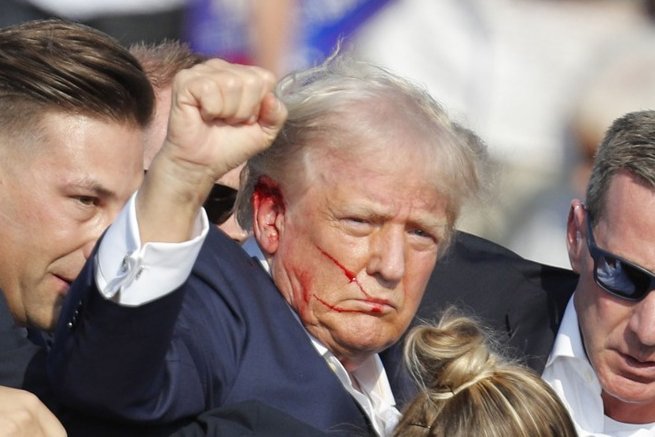
Trump, who was rushed off the stage, was treated for his injuries and released later that day. His quick recovery and subsequent appearance at the Republican National Convention just days later underscored his resilience. The incident has been widely regarded as one of the most significant security failures since the attempted assassination of Ronald Reagan in 1981, leading to intense scrutiny of the Secret Service.
In response, President Joe Biden ordered an independent review of security measures for all presidential candidates. The attempted assassination has also reignited debates over the safety and security of political figures in the increasingly polarized American political climate. Enhanced security protocols, including the use of bulletproof glass at rallies, have since been implemented.
As Trump continues his 2024 presidential campaign, this attack serves as a stark reminder of the real and present dangers faced by political leaders in today’s volatile environment. The investigation into the incident is ongoing, with authorities exploring Crooks’ possible motives and any connections to extremist groups.
The attempt on Trump’s life has further heightened tensions in an already deeply divided nation, with political leaders from all sides condemning the violence and urging for a de-escalation of rhetoric. The events of that July night will undoubtedly have lasting implications on the security landscape of American politics.
Global Impact
International Relations
Donald Trump’s presidency had a significant impact on global politics and international relations. His “America First” foreign policy, characterized by a focus on national sovereignty and a rejection of multilateralism, challenged the traditional role of the United States as a global leader.
Trump’s approach to international relations was often transactional, emphasizing the need for other countries to pay their fair share in alliances like NATO and to engage in more favorable trade deals with the United States. This approach led to tensions with traditional allies, particularly in Europe, and a realignment of global alliances.
Trump’s relationship with authoritarian leaders, such as Vladimir Putin of Russia and Kim Jong-un of North Korea, was another defining aspect of his foreign policy. His willingness to engage directly with these leaders, often in unconventional ways, led to both diplomatic breakthroughs and controversies.
The long-term impact of Trump’s foreign policy on global politics is still being debated. While some argue that his approach disrupted the status quo in positive ways, others believe it weakened America’s global standing and emboldened authoritarian regimes.
Global Populism
Trump’s presidency also had a significant influence on the rise of populism around the world. His success in the 2016 election was seen as part of a broader trend of populist movements challenging established political elites in various countries.
Trump’s rhetoric and policies, particularly his focus on immigration, trade, and national sovereignty, resonated with populist leaders and movements in Europe, Latin America, and Asia. His election was seen as a validation of populist strategies, and his presidency inspired similar political campaigns in other countries.
The global populist movement, characterized by its emphasis on nationalism, anti-globalization, and skepticism of traditional institutions, has had a profound impact on global politics. Trump’s role as a leading figure in this movement has solidified his place in history as a significant influence on the political landscape of the 21st century.
Conclusion
Summation of Trump’s Life
Donald Trump’s life and career have been marked by success, controversy, and a relentless drive for achievement. From his early days as a real estate developer in New York City to his rise as a reality television star and his presidency, Trump has consistently defied expectations and remained a central figure in American and global politics.
Trump’s influence extends far beyond the business world, shaping the course of American politics and redefining the Republican Party. His presidency, characterized by its populist and nationalist agenda, has left a lasting impact on the United States and the world.
Historical Significance
Donald Trump’s place in history is assured, though his legacy will be the subject of debate for years to come. Supporters view him as a transformative figure who challenged the political establishment, while critics argue that his presidency was marked by division and the erosion of democratic norms.
Regardless of one’s perspective, there is no denying that Trump has had a profound impact on American society and global politics. His influence on the Republican Party, his role in the rise of populism, and his approach to leadership will be studied and debated for generations.
Personal Reflections
Donald Trump is a complex and contradictory figure, embodying both the best and worst aspects of American ambition and success. His life story is one of triumphs and failures, resilience and controversy, and his character reflects the complexities of the man himself.
Trump’s ability to connect with a significant portion of the American electorate, his mastery of media and branding, and his willingness to defy convention have made him a unique figure in American history. Whether one admires or criticizes him, Trump’s impact on the world is undeniable, and his story will continue to captivate and challenge future generations.
Appendices
Timeline of Trump’s Life
1946: Born in Queens, New York.
1968: Graduates from the Wharton School of Finance at the University of Pennsylvania.
1971: Takes control of the Trump Organization.
1983: Trump Tower opens in Manhattan.
1987: Publishes “The Art of the Deal.”
1991: Trump Taj Mahal files for bankruptcy.
2004: “The Apprentice” premieres on NBC.
2016: Elected as the 45th President of the United States.
2019: Impeached by the House of Representatives (first impeachment).
2021: Impeached for a second time following the January 6th Capitol attack.
2024: Announces a run for president in the 2024 election ; Assassination attempt
Frequently Asked Questions
What is Donald Trump’s net worth?
Donald Trump’s net worth has been estimated to be around $2.5 billion, though the exact figure is difficult to verify due to the complexity of his assets.
How many times has Trump been married?
Donald Trump has been married three times: to Ivana Trump (1977-1992), Marla Maples (1993-1999), and Melania Trump (2005-present).
What was Trump’s role in “The Apprentice”?
Trump was the host and central figure of “The Apprentice,” a reality television show where contestants competed in business challenges. His catchphrase, “You’re fired!” became iconic.
What are some of Trump’s major accomplishments as president?
Trump’s major accomplishments include tax reform, the appointment of conservative judges, renegotiating trade deals like NAFTA, and brokering the Abraham Accords in the Middle East.
What controversies marked Trump’s presidency?
Major controversies include his handling of the COVID-19 pandemic, the Russian interference investigation, the Charlottesville response, and the January 6th Capitol attack.
Reference : http://britannica.com





